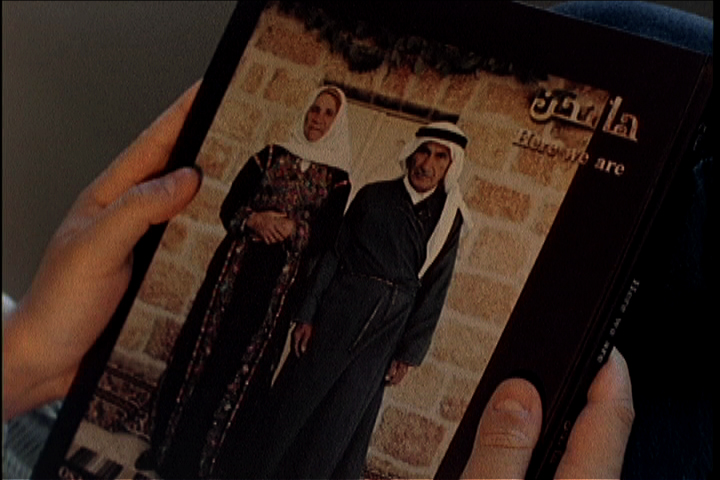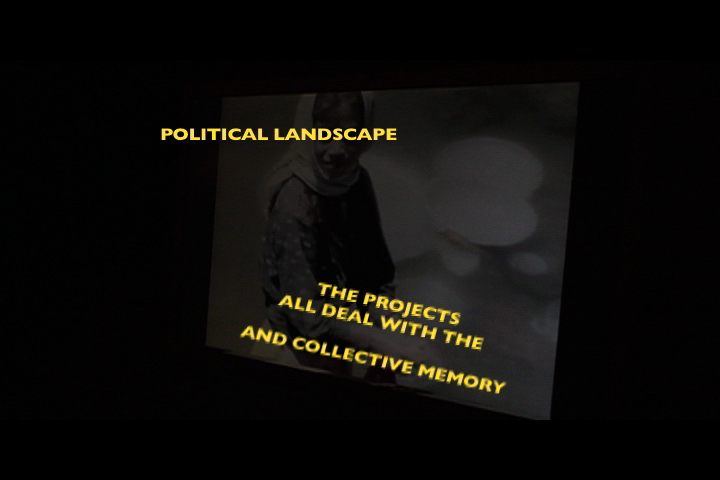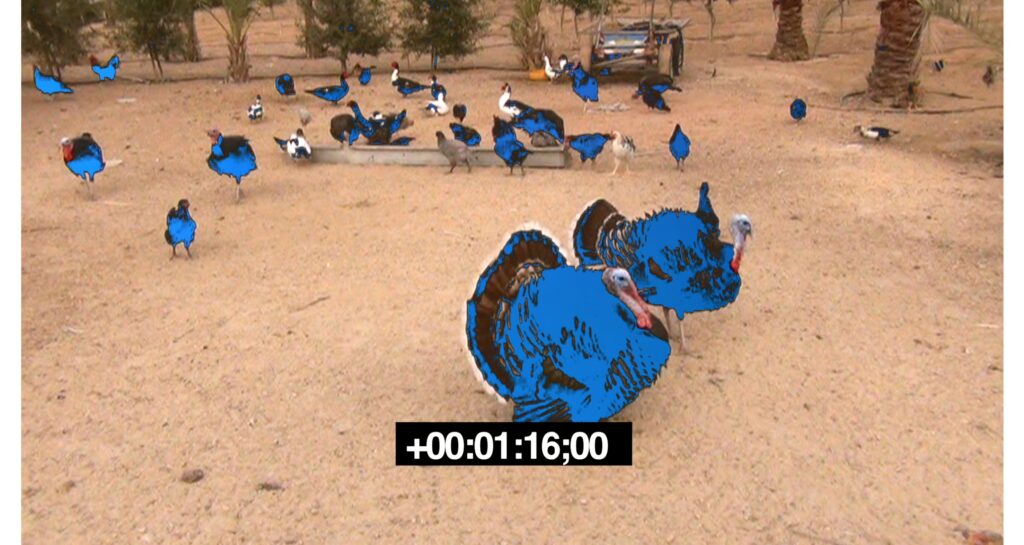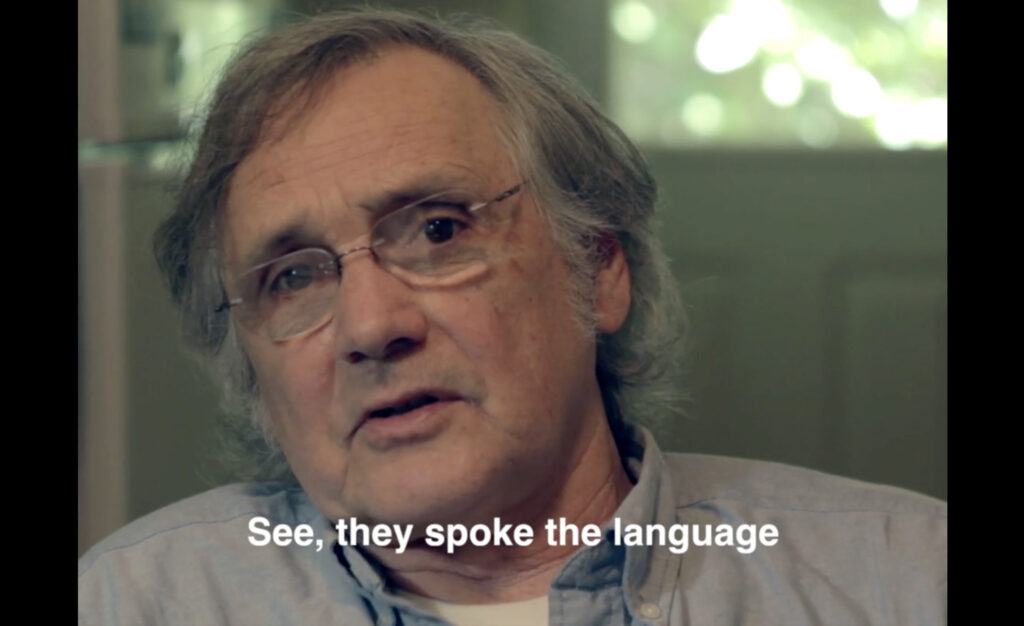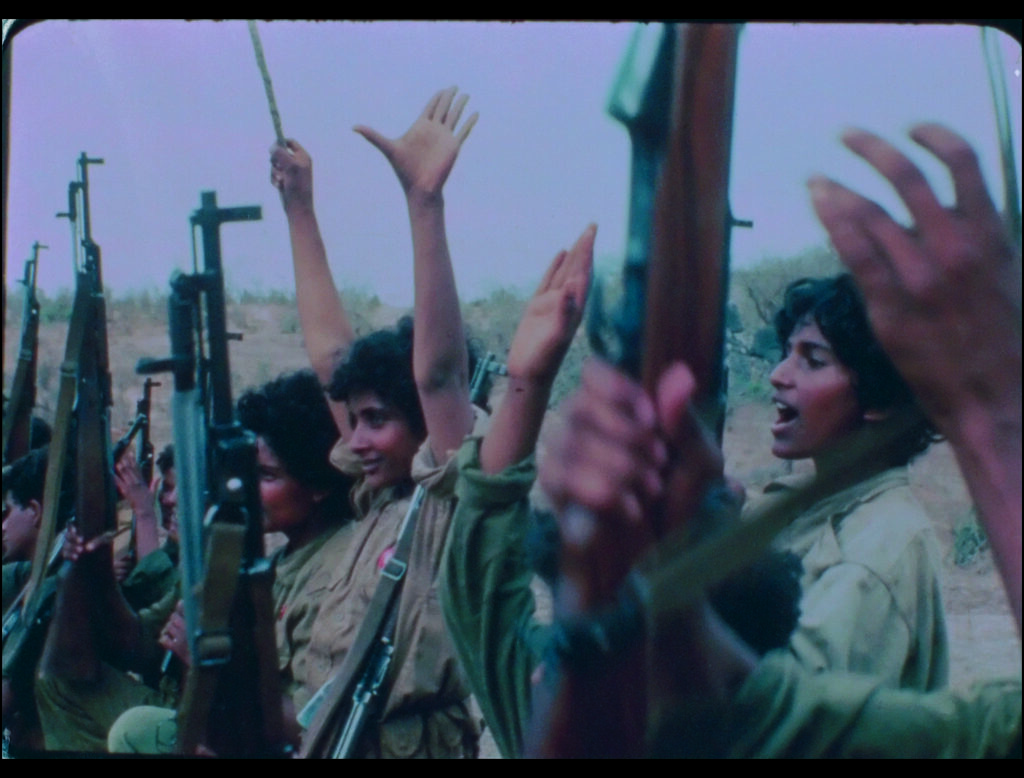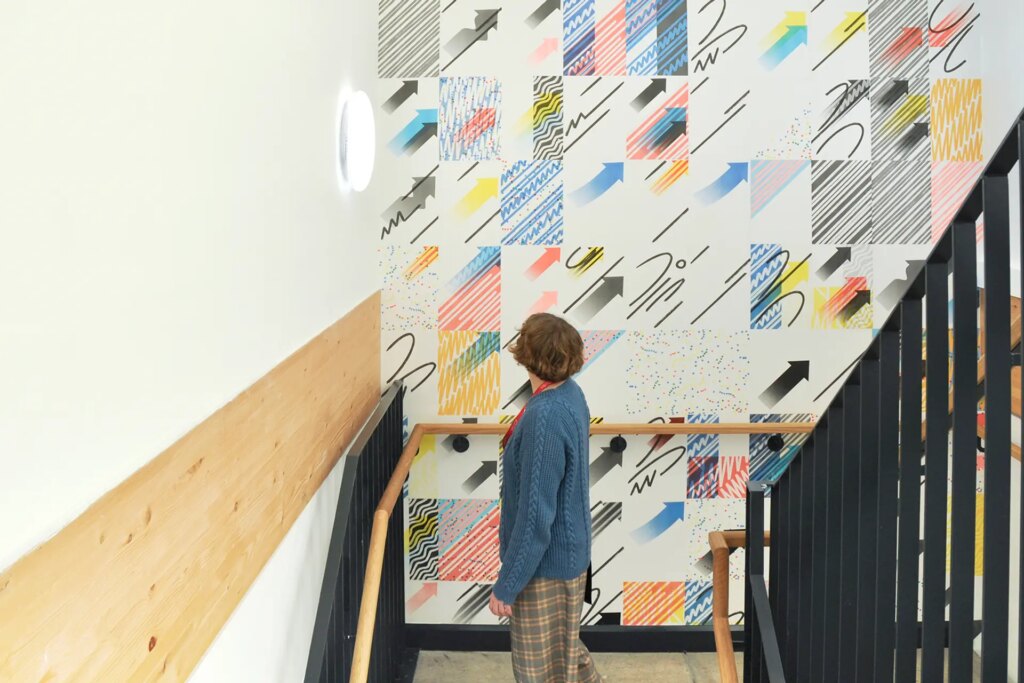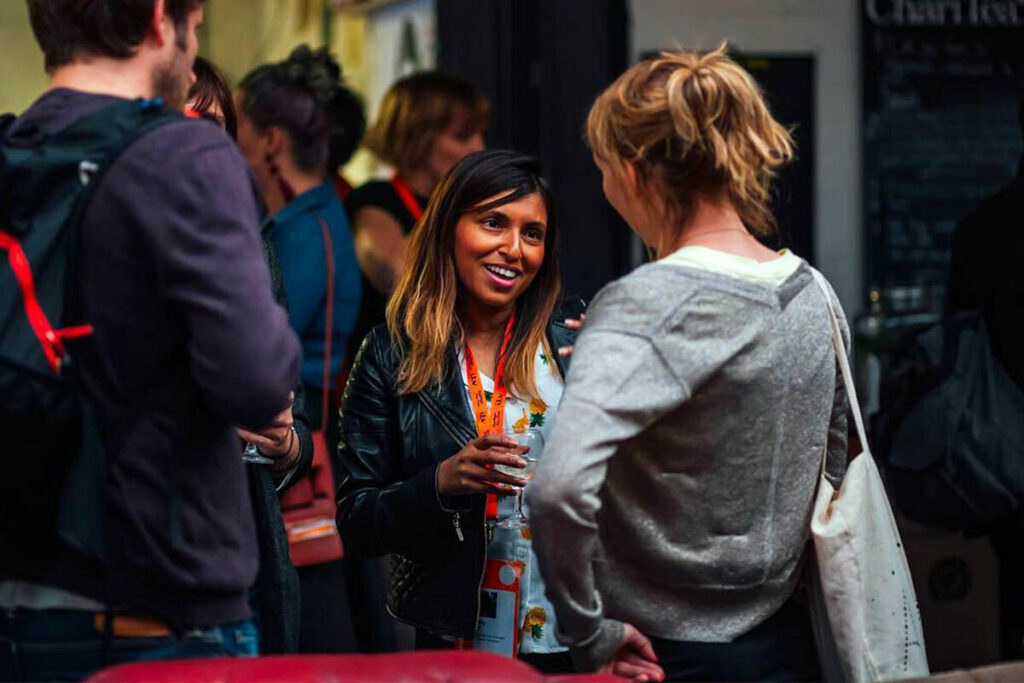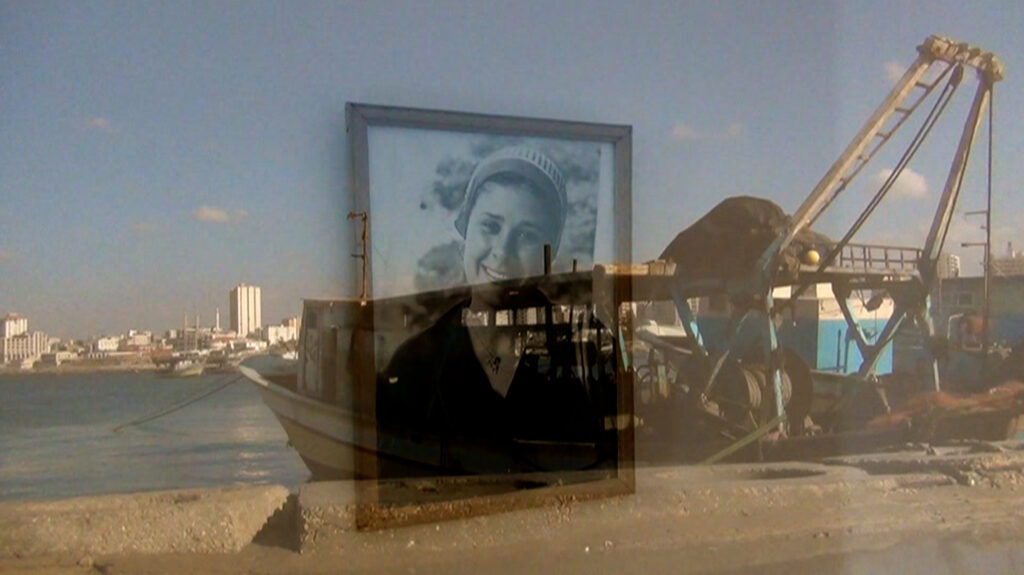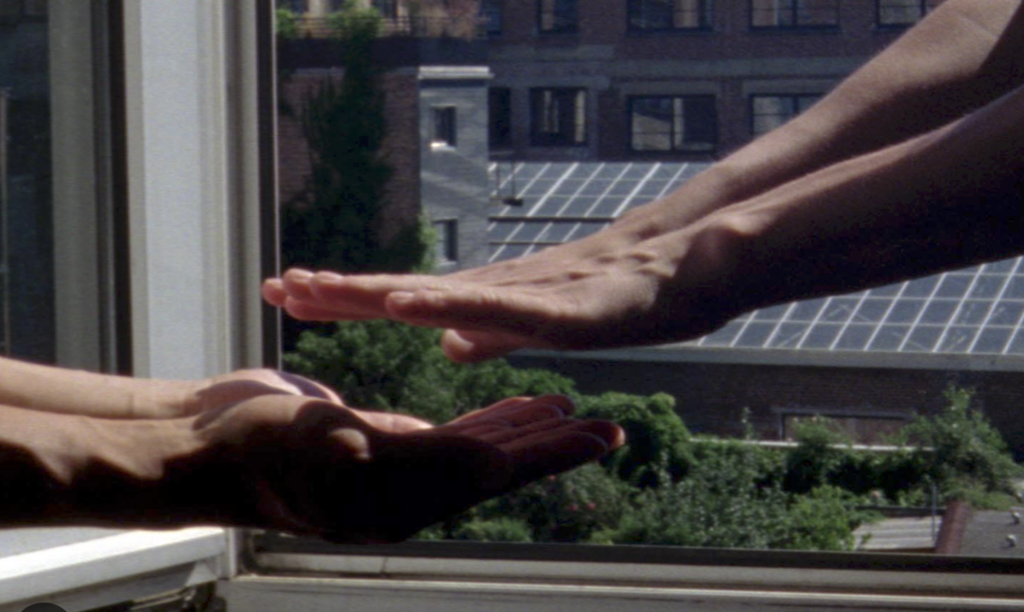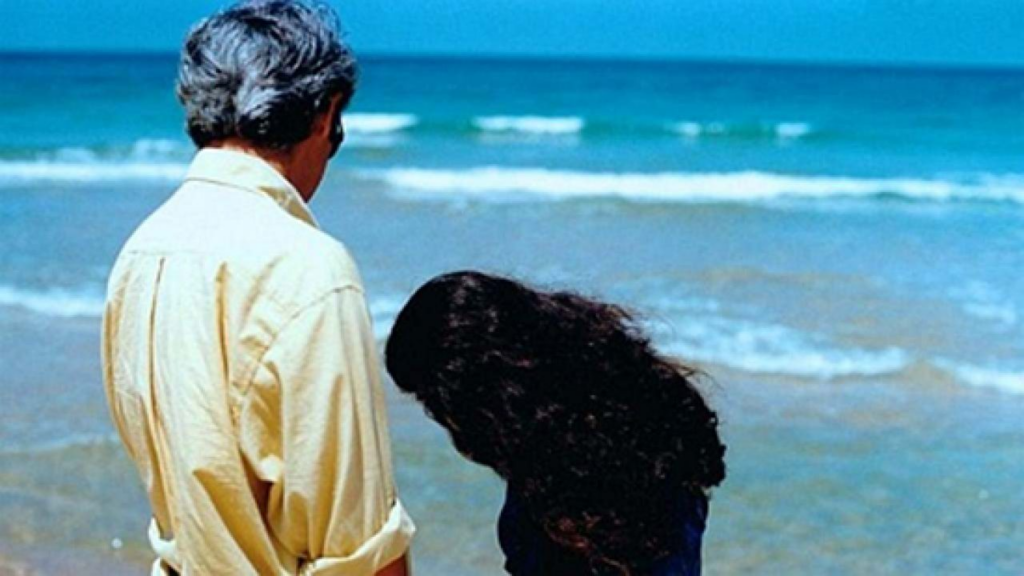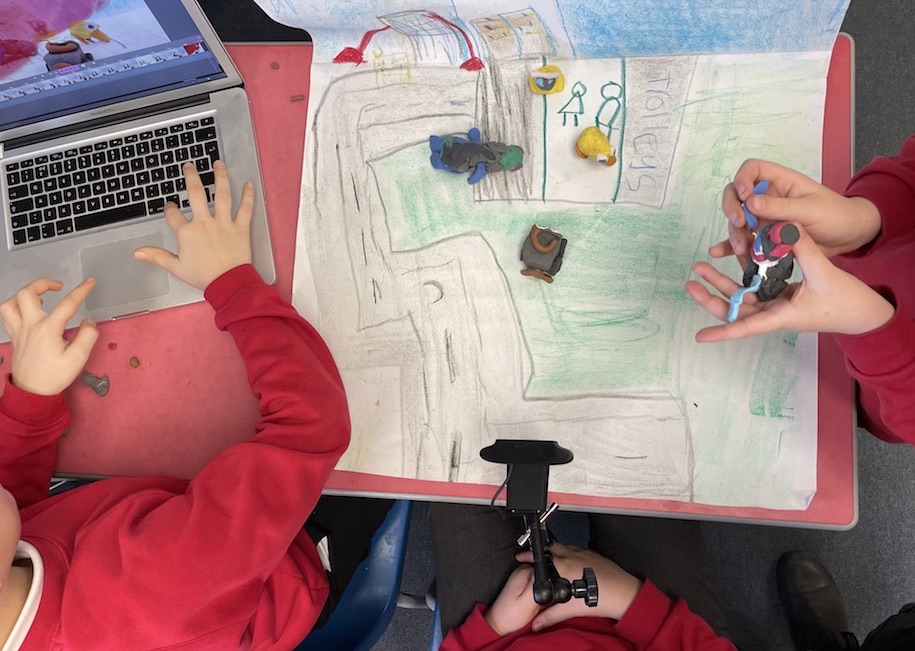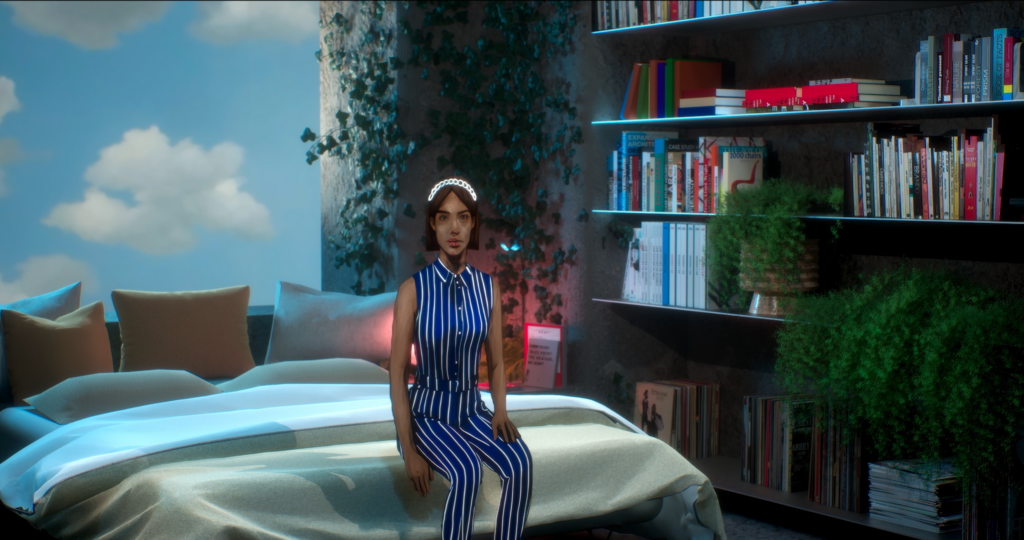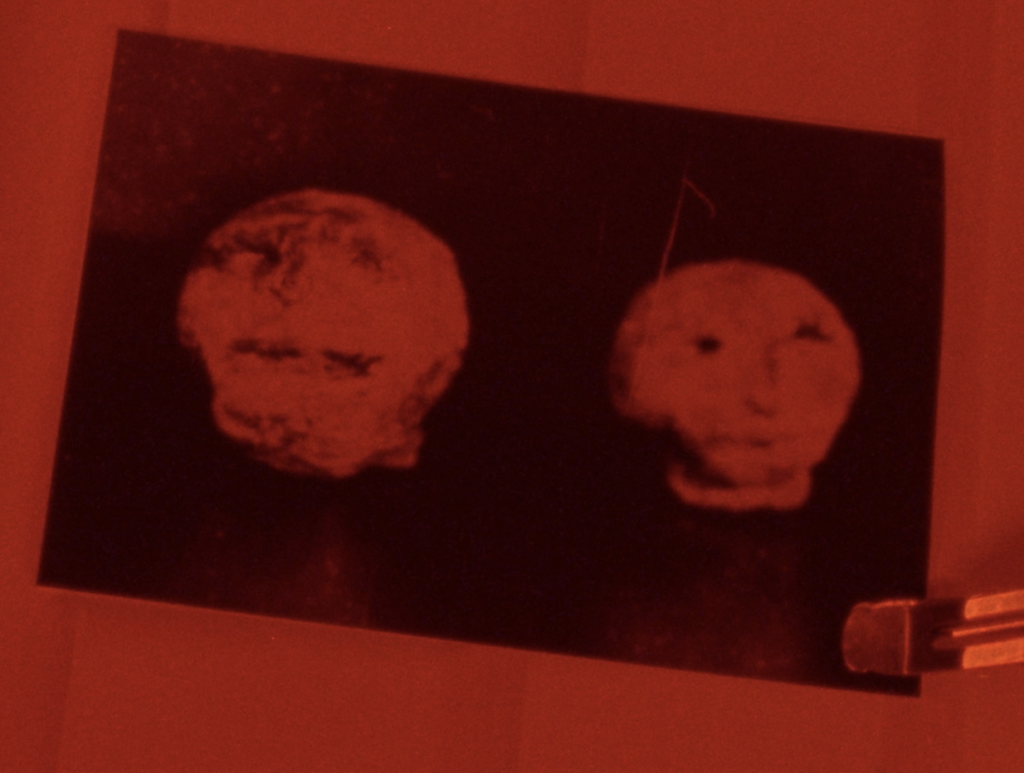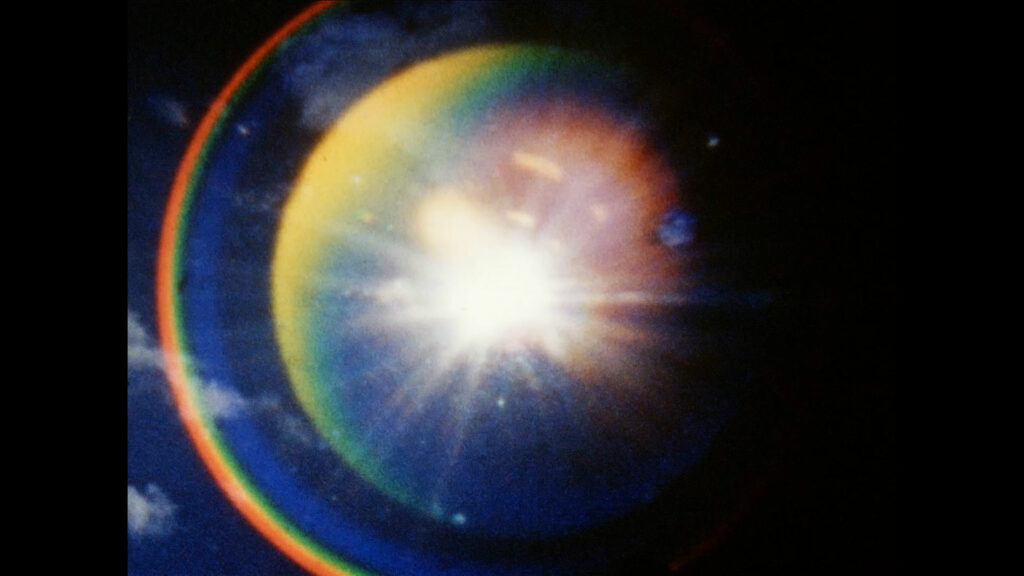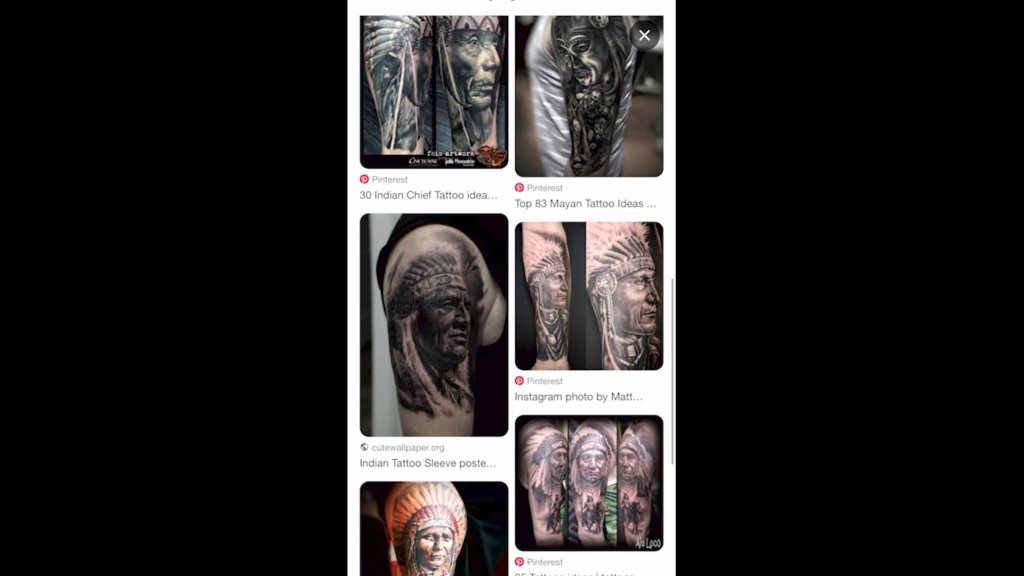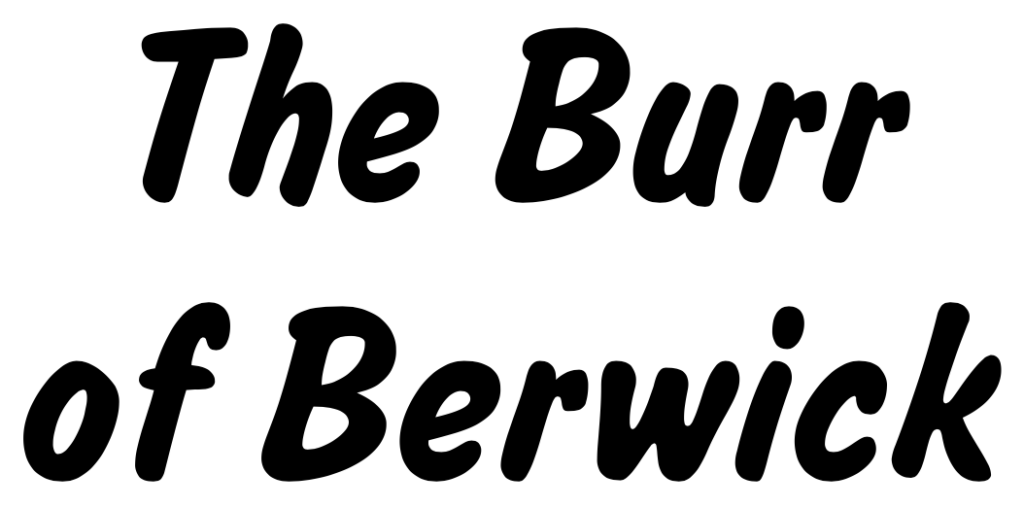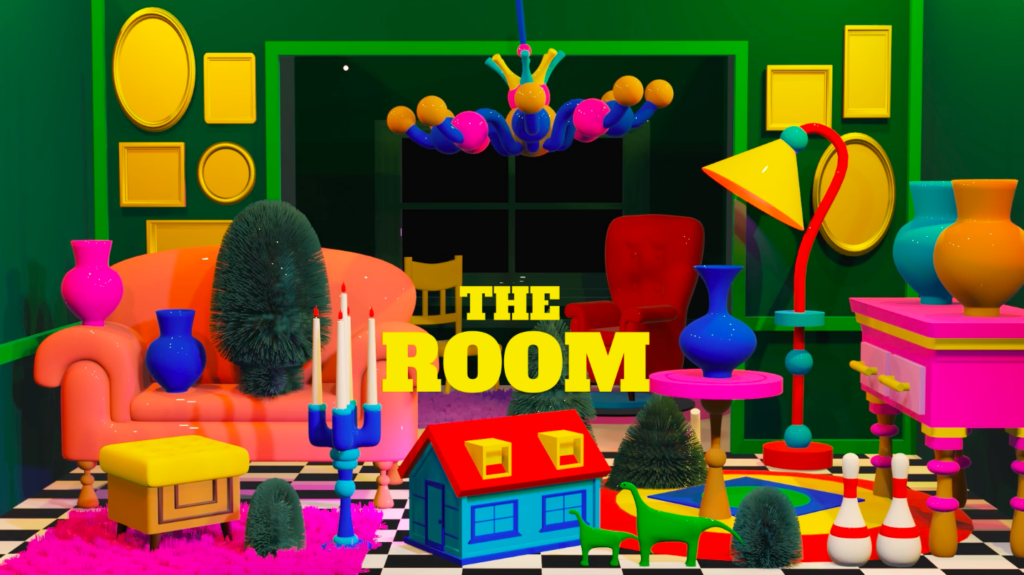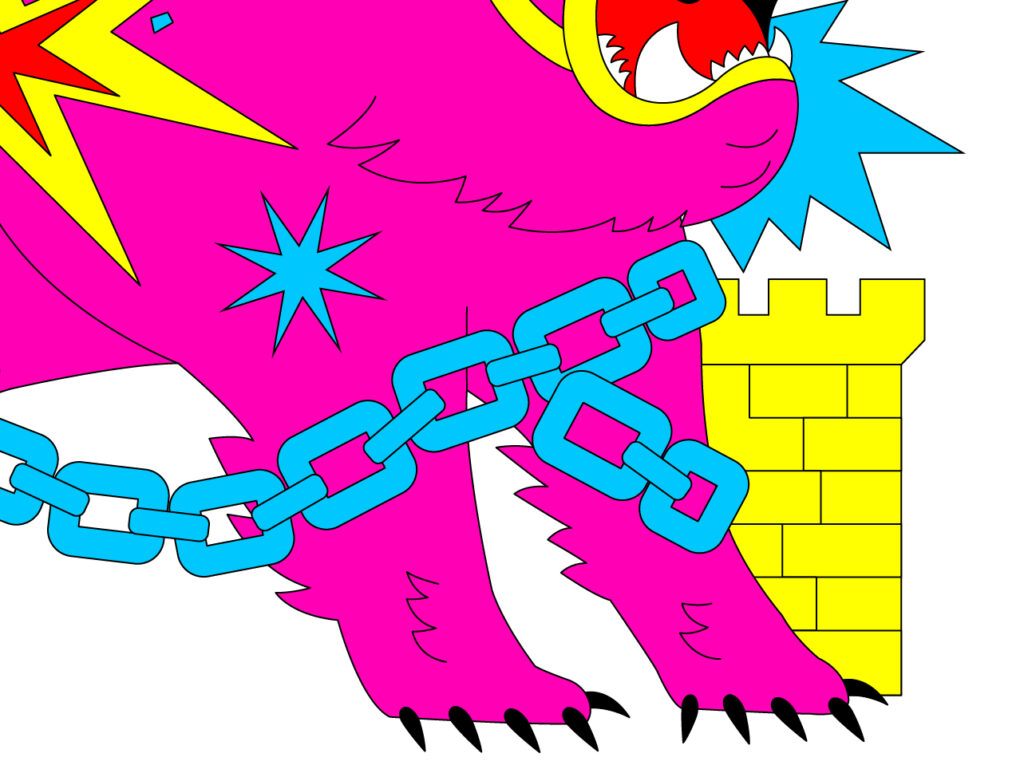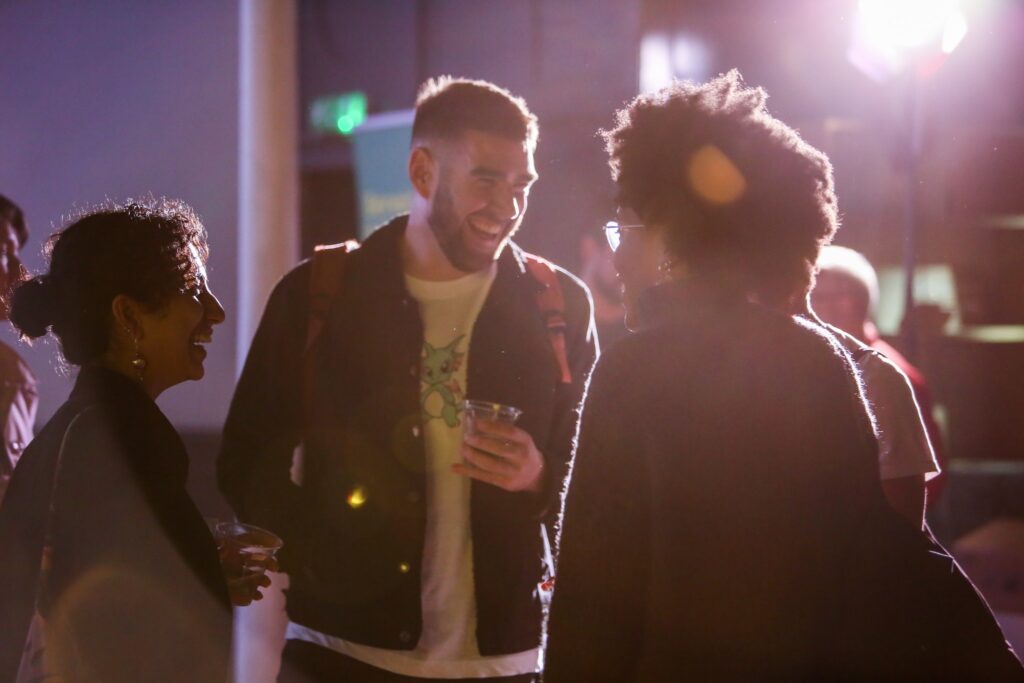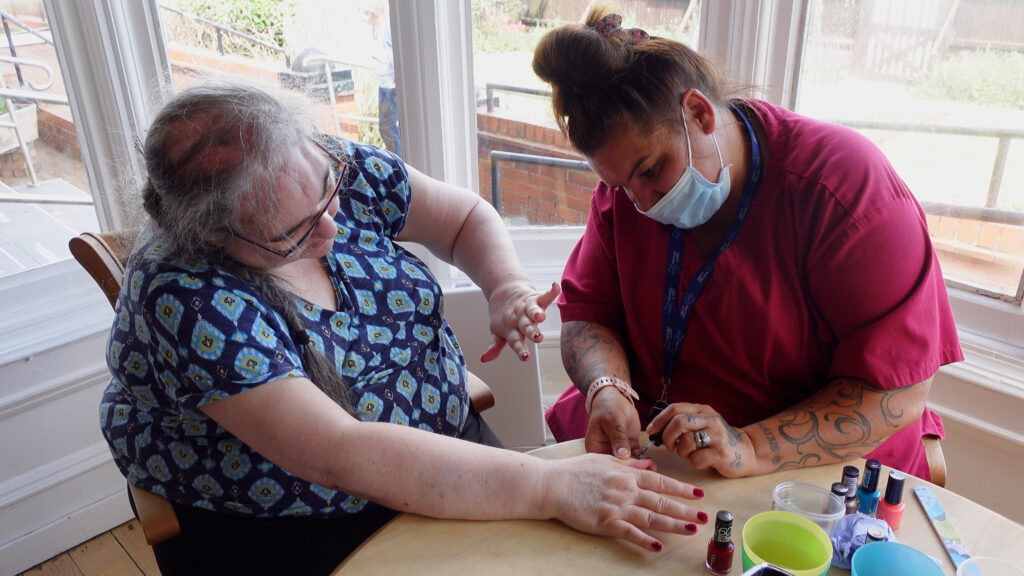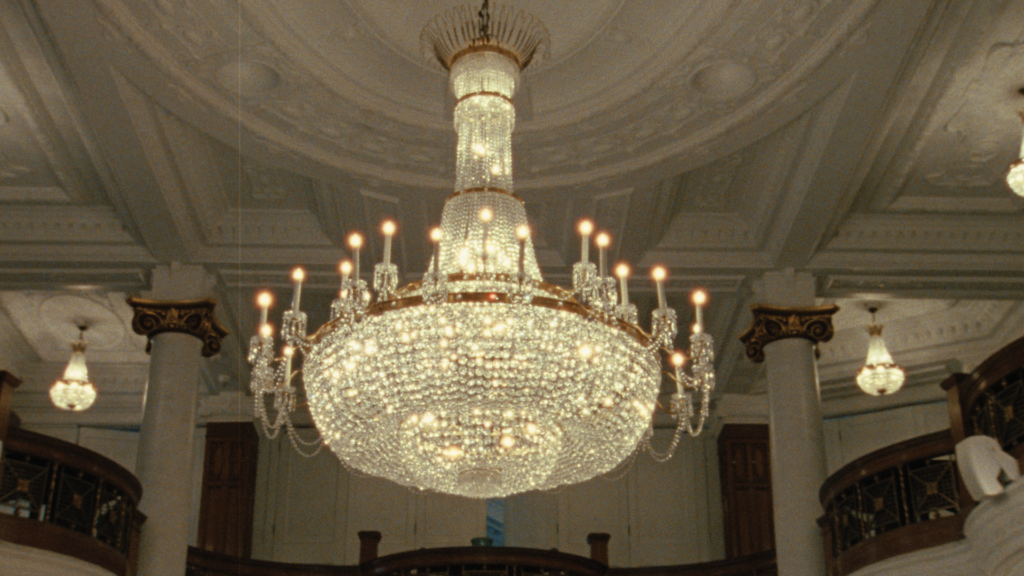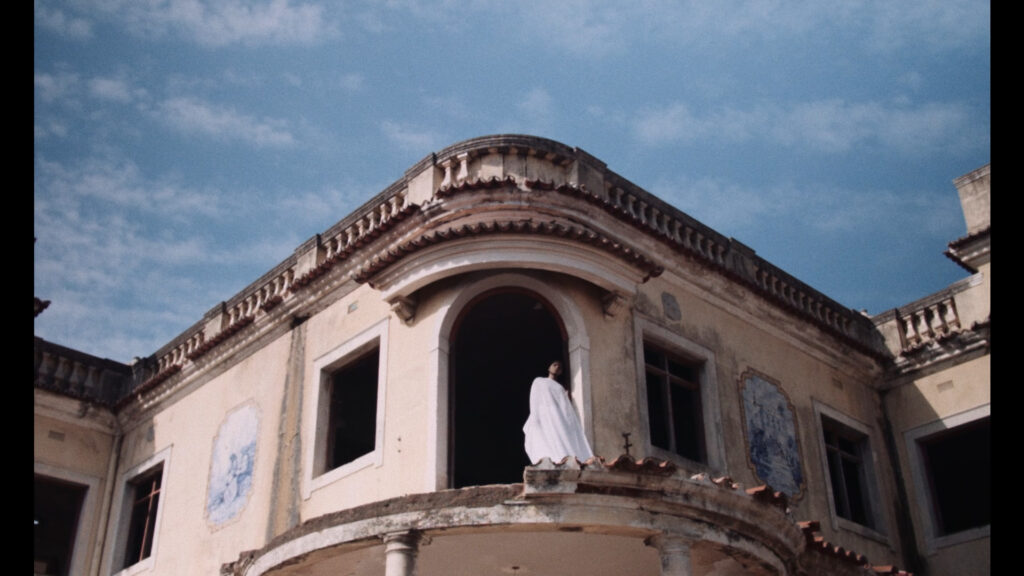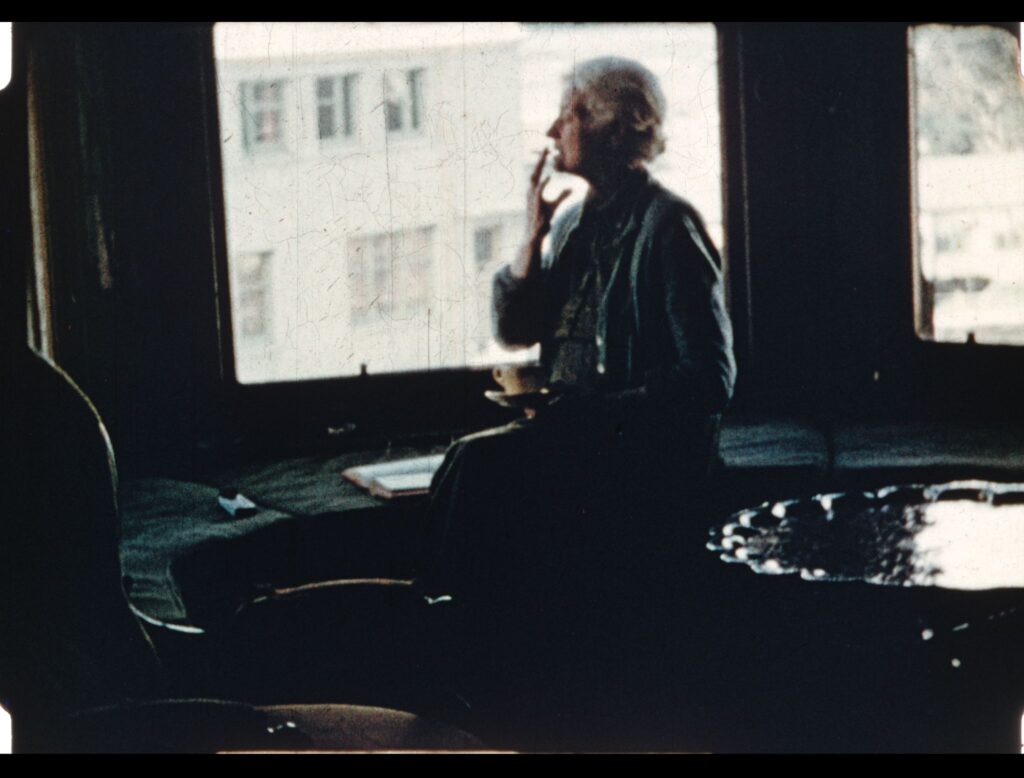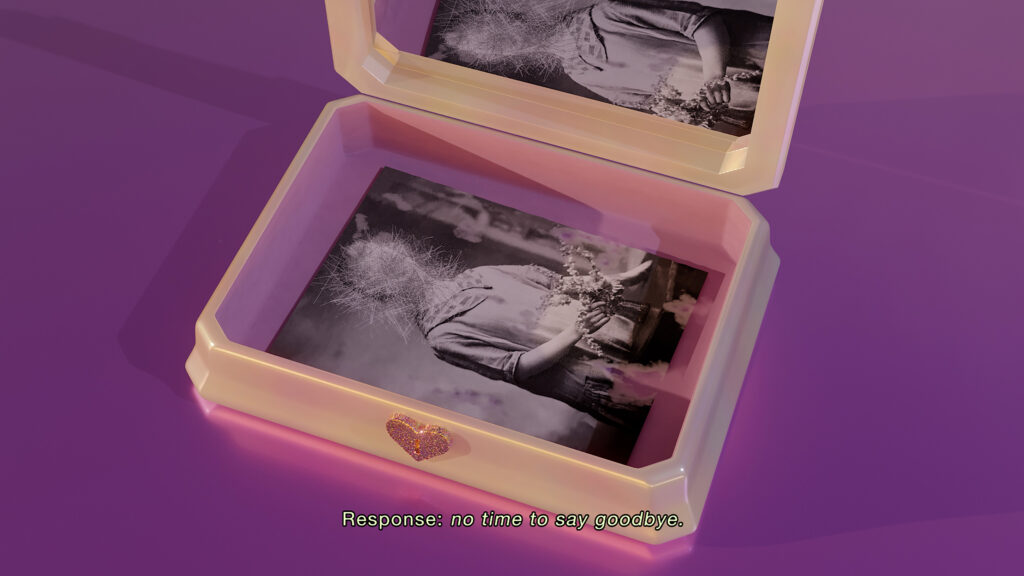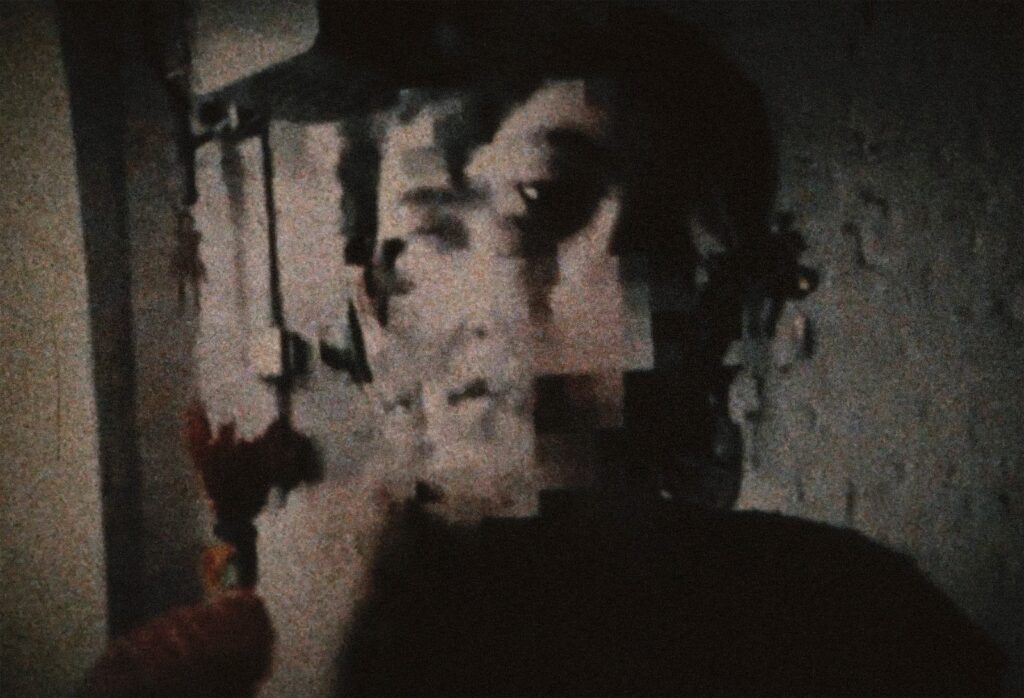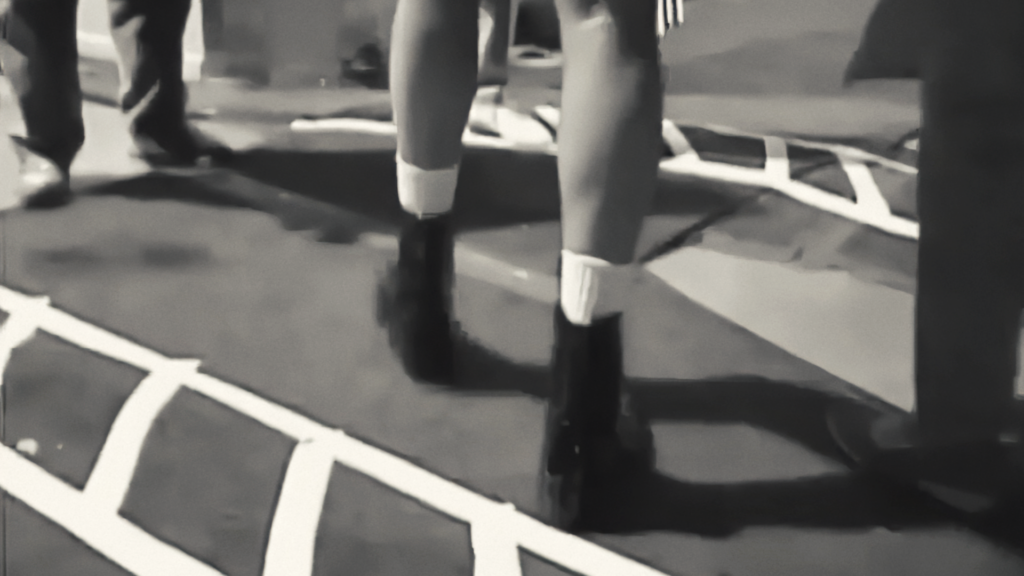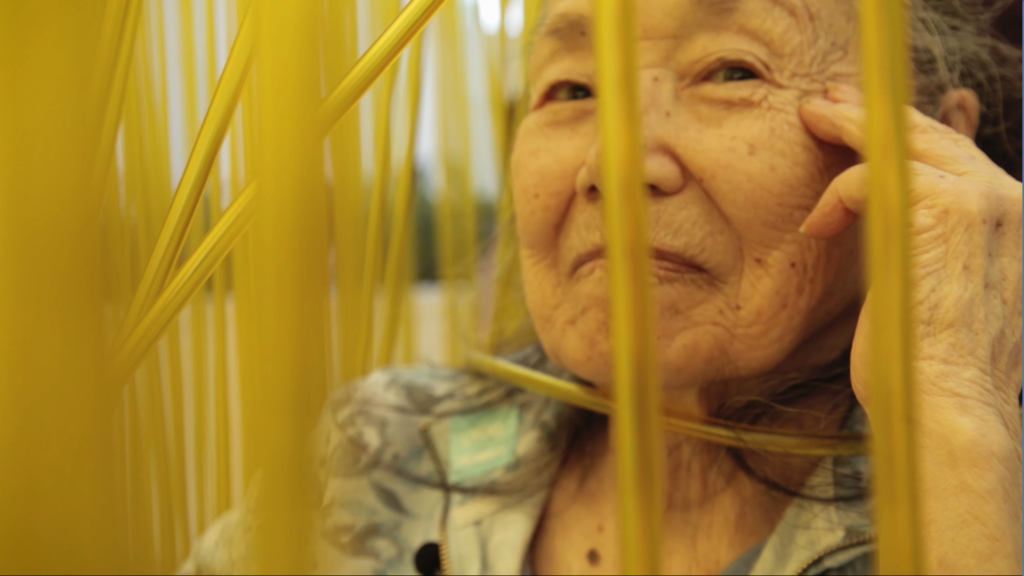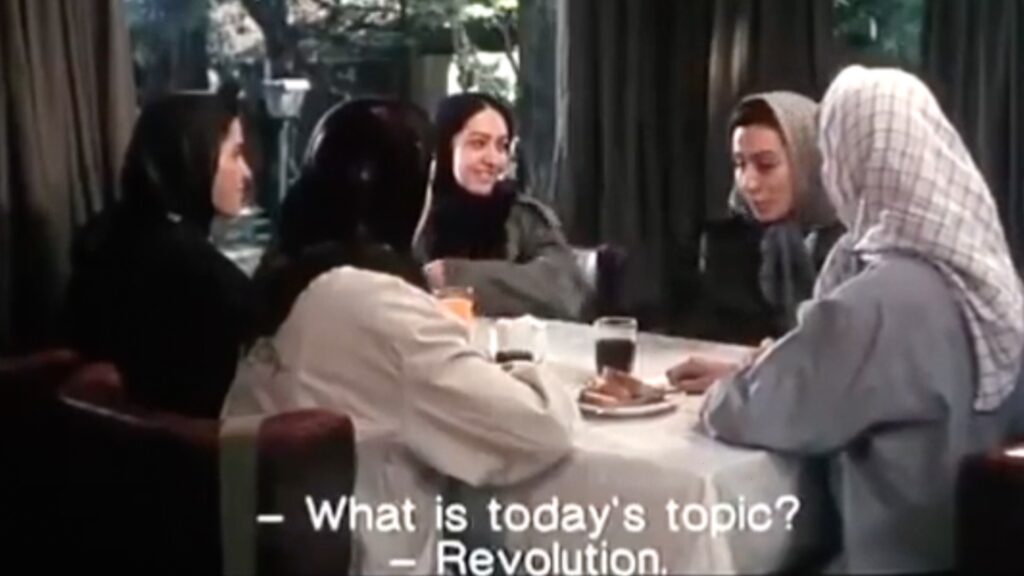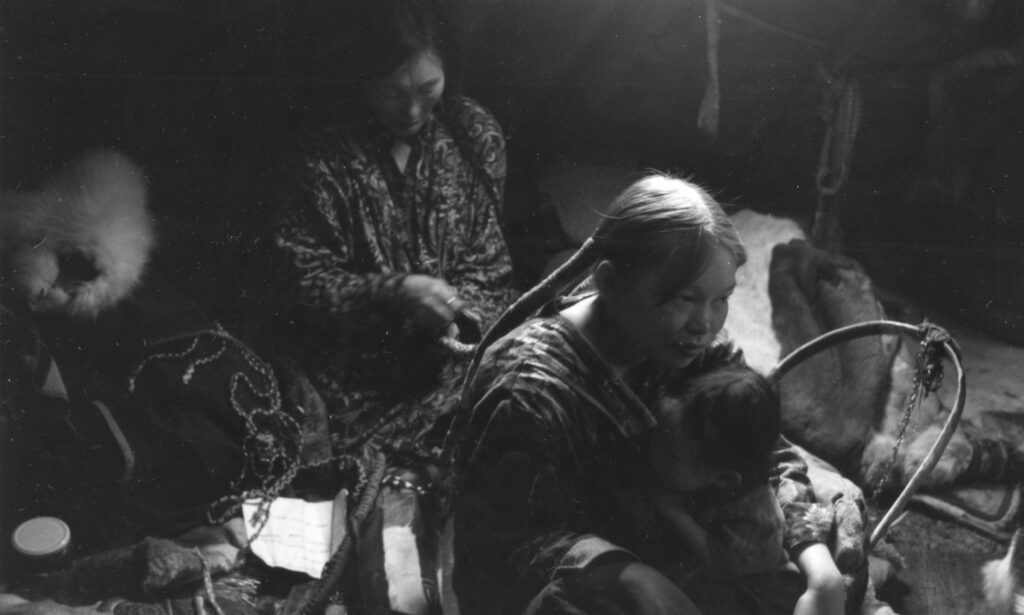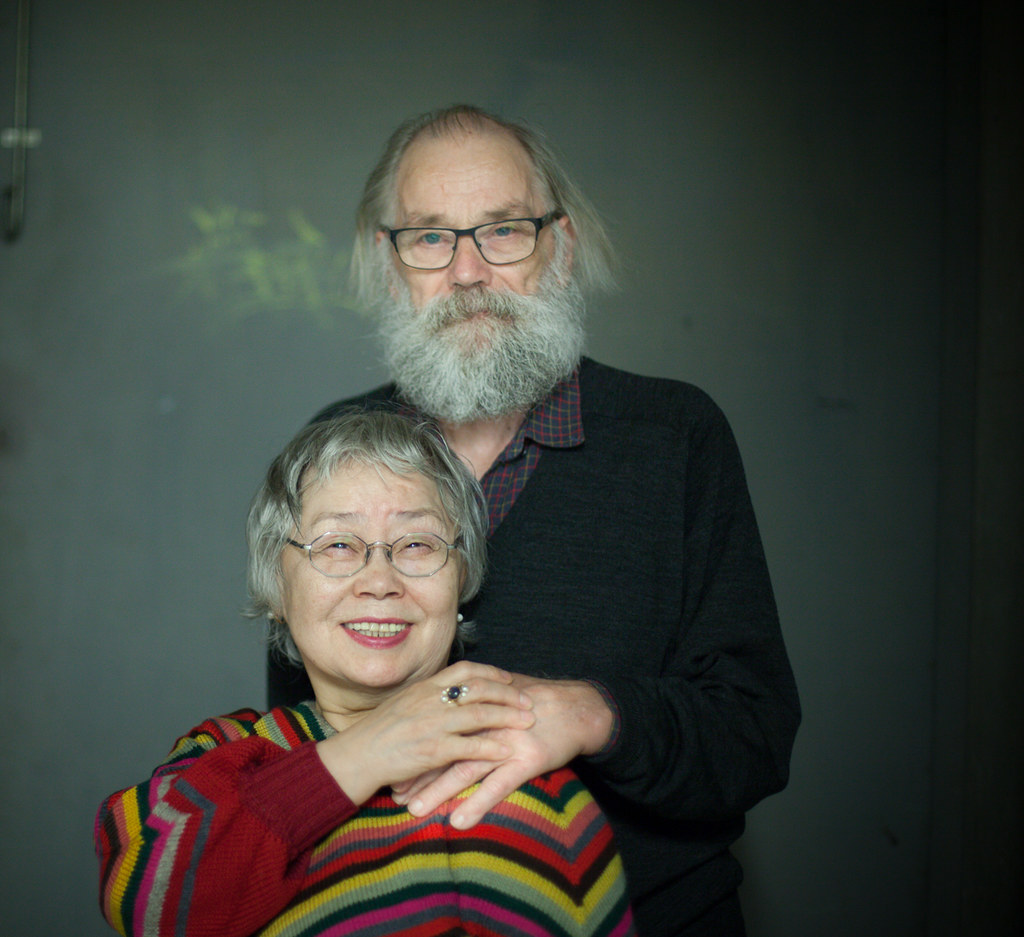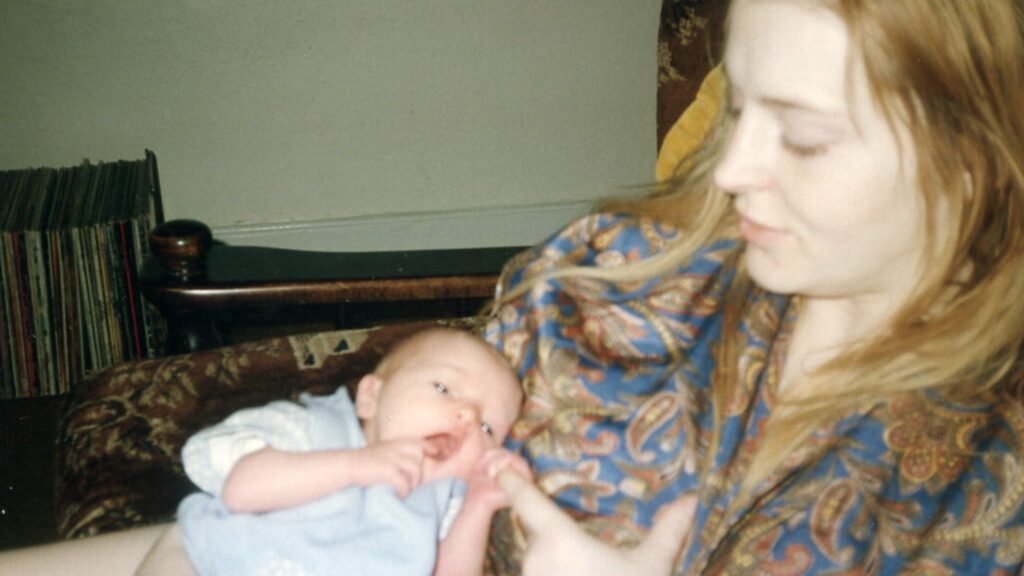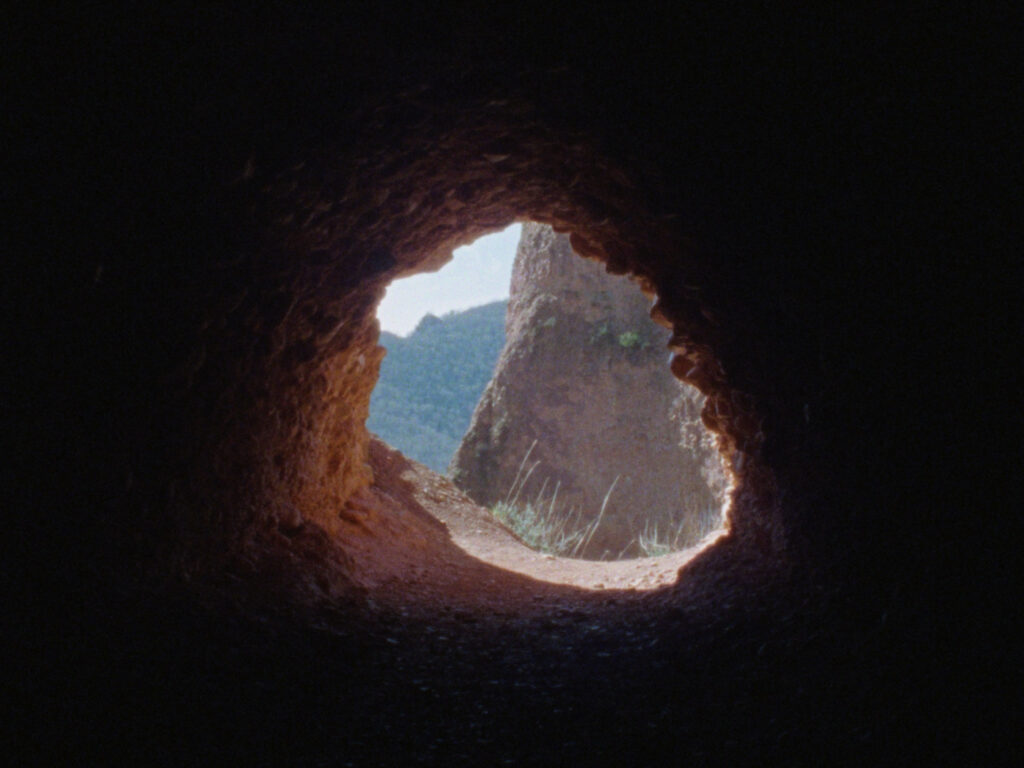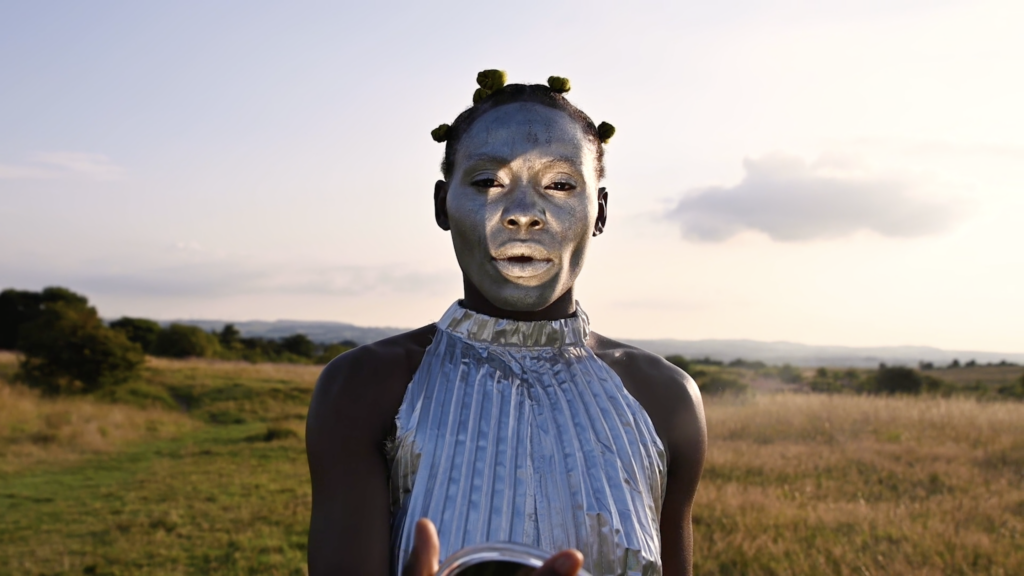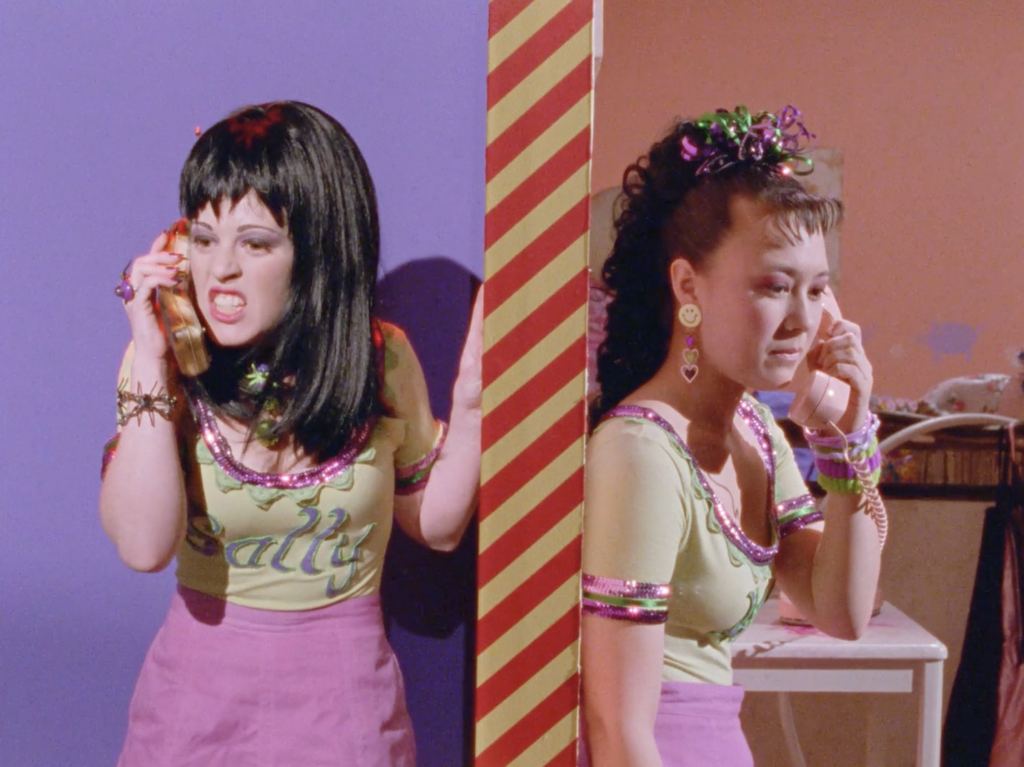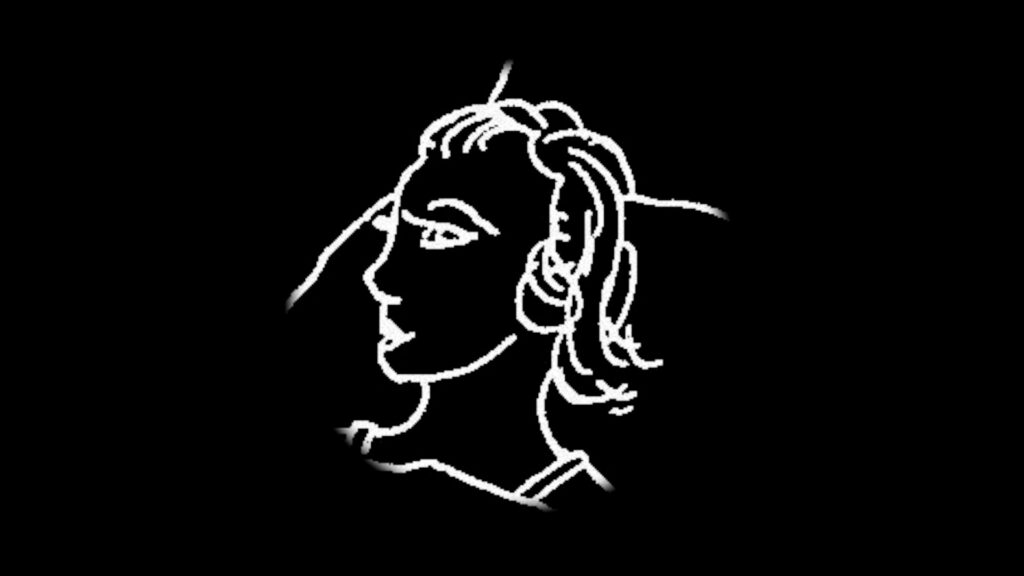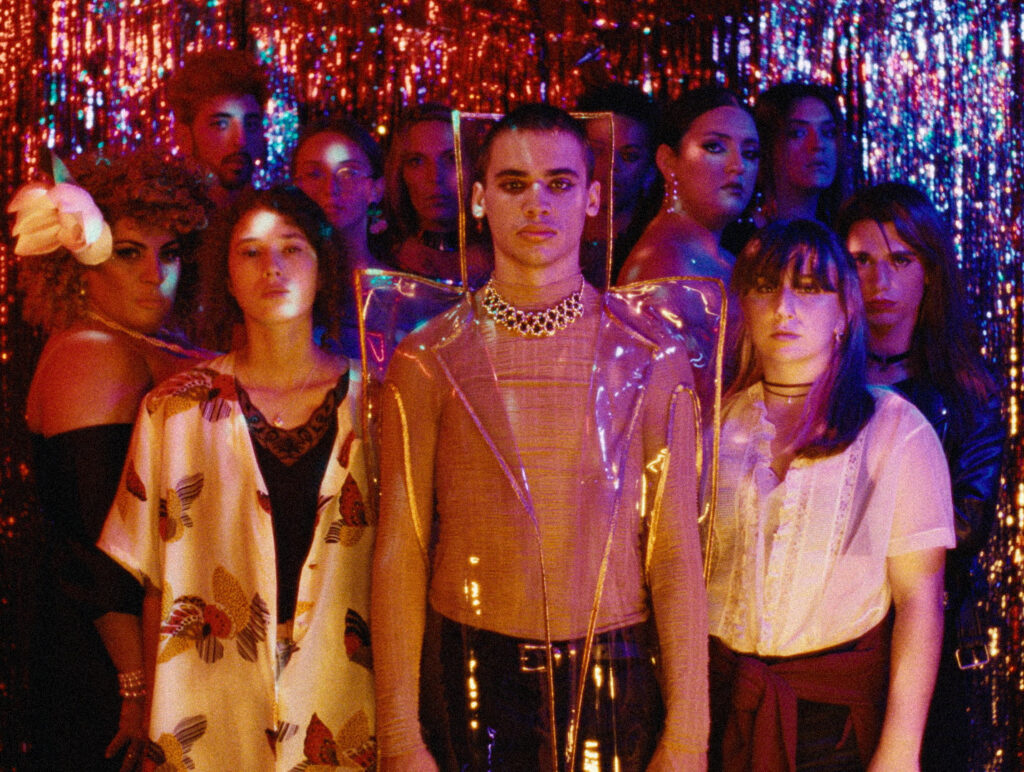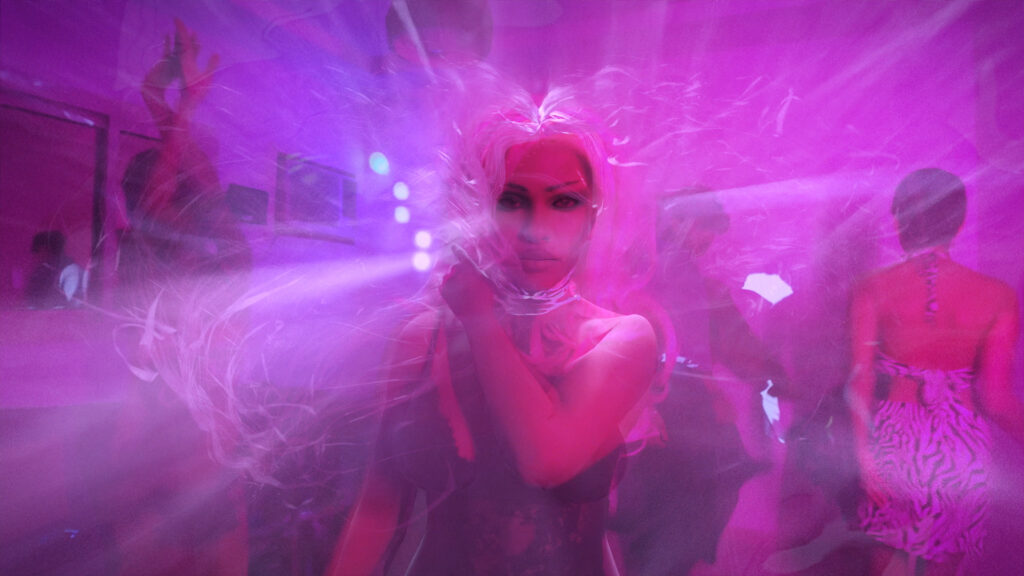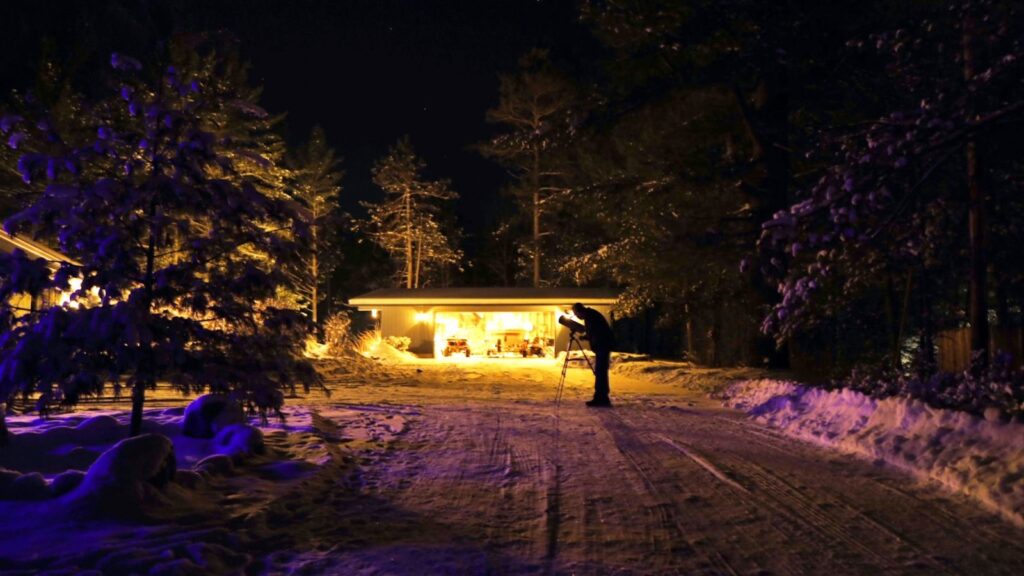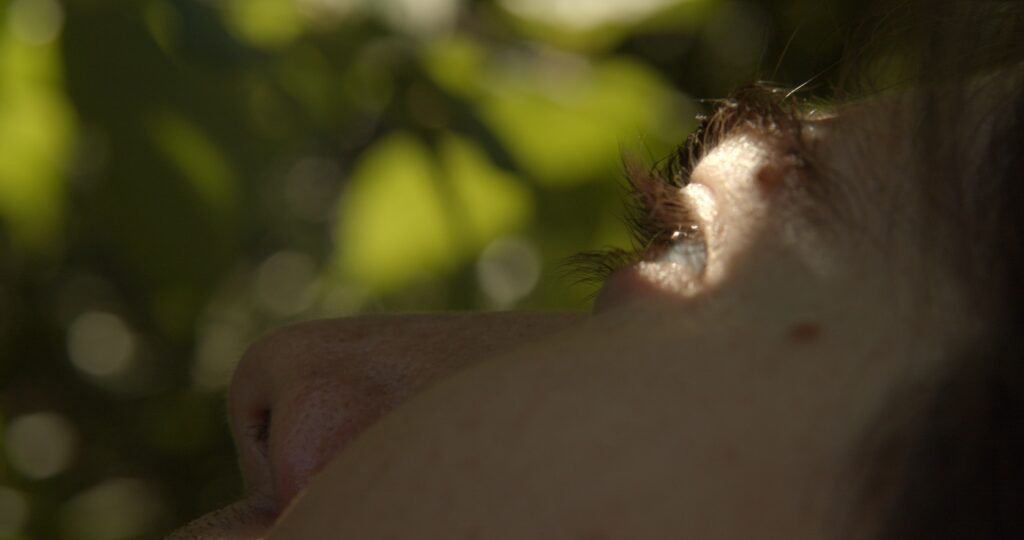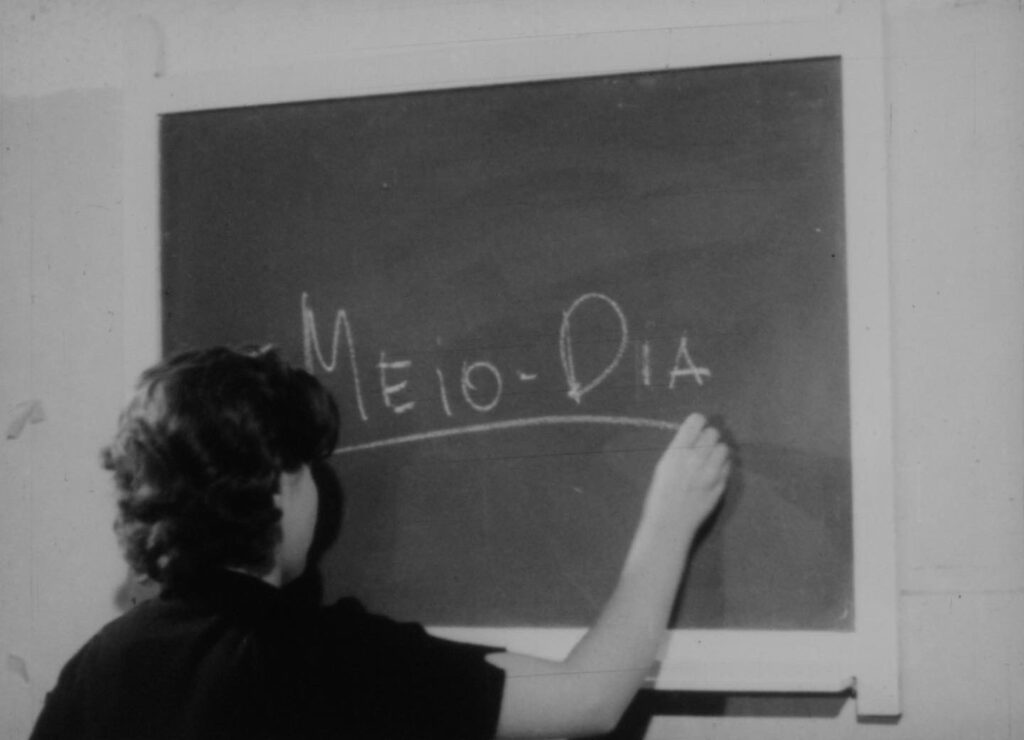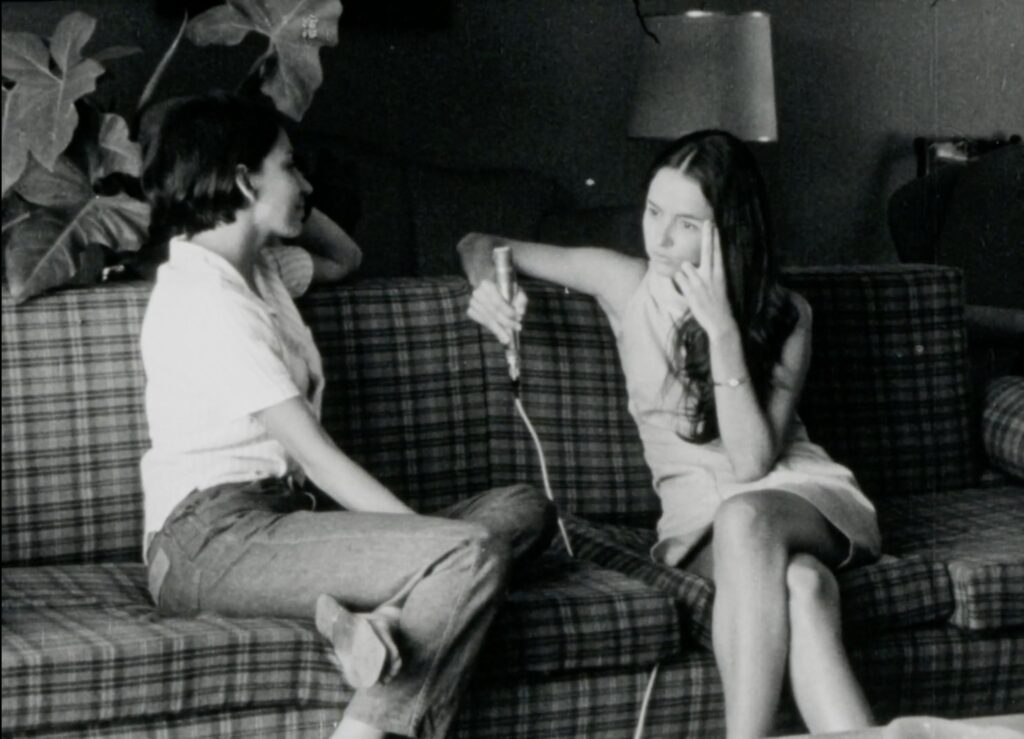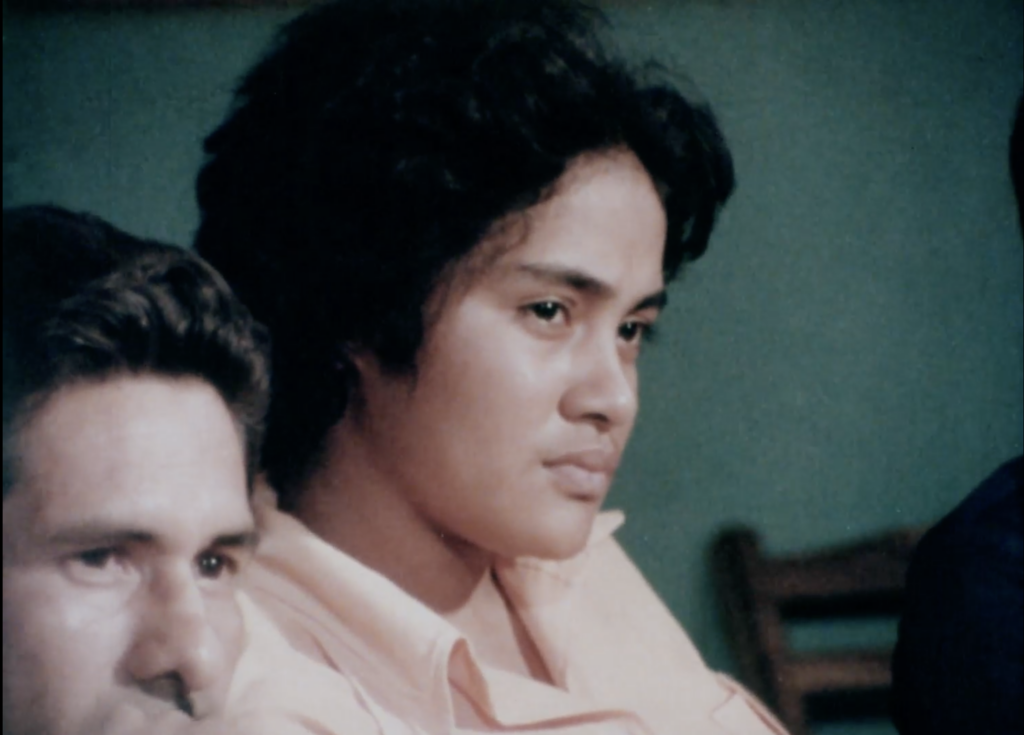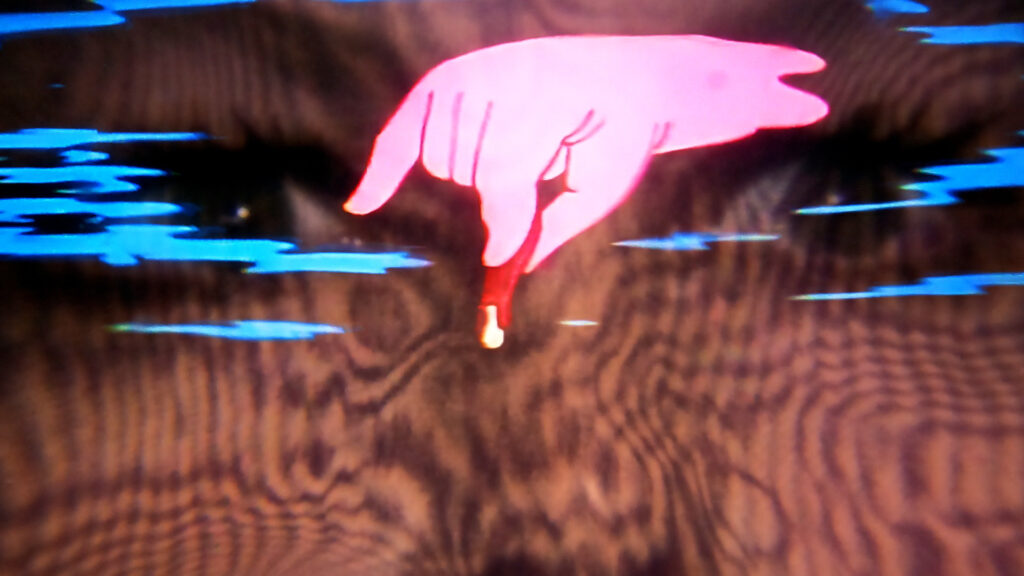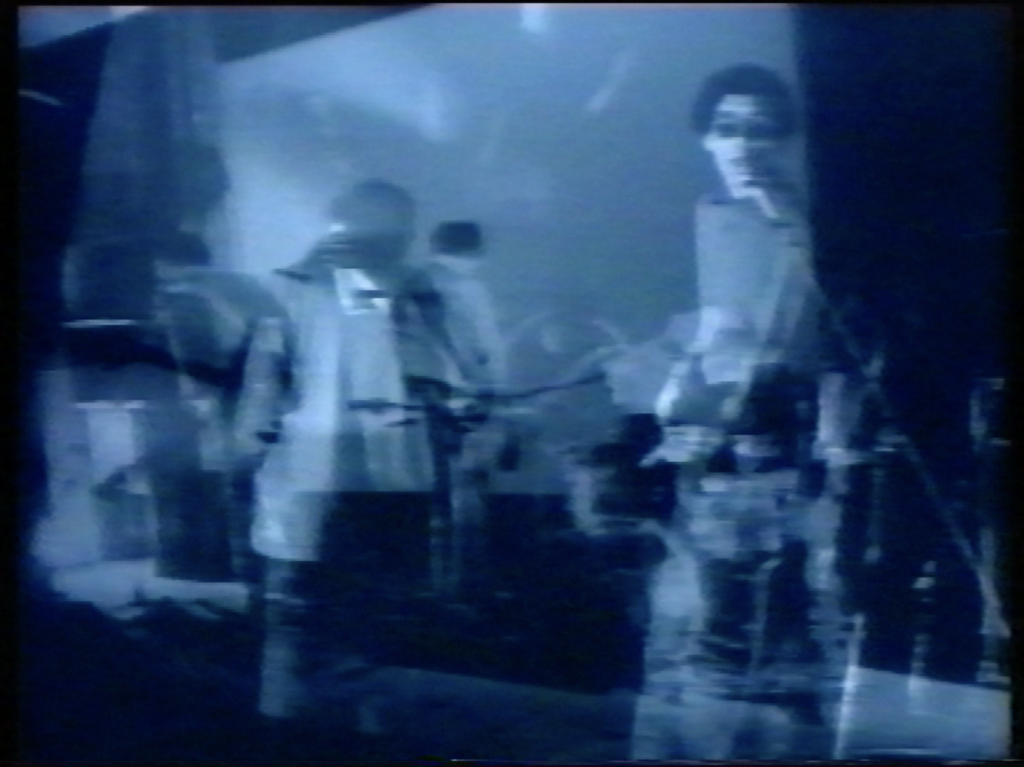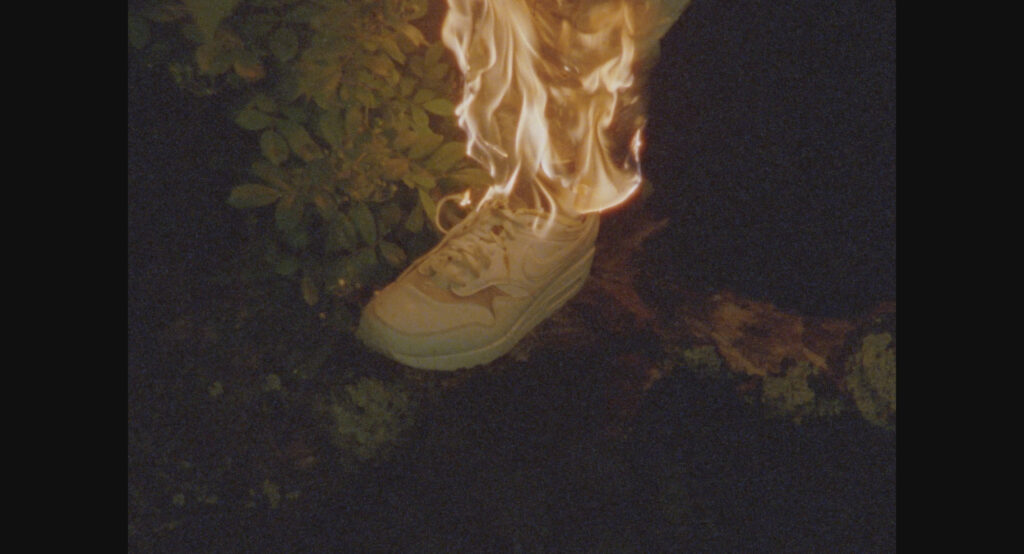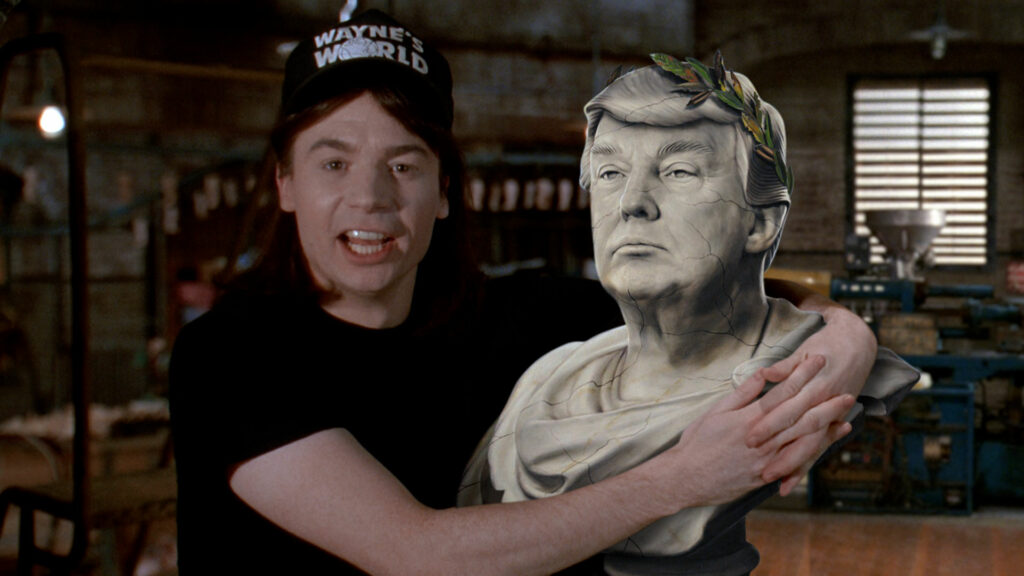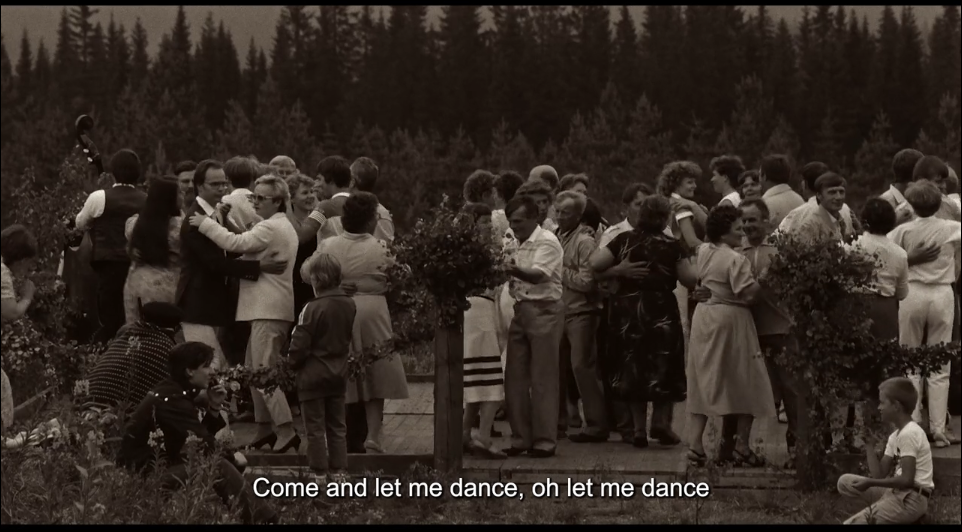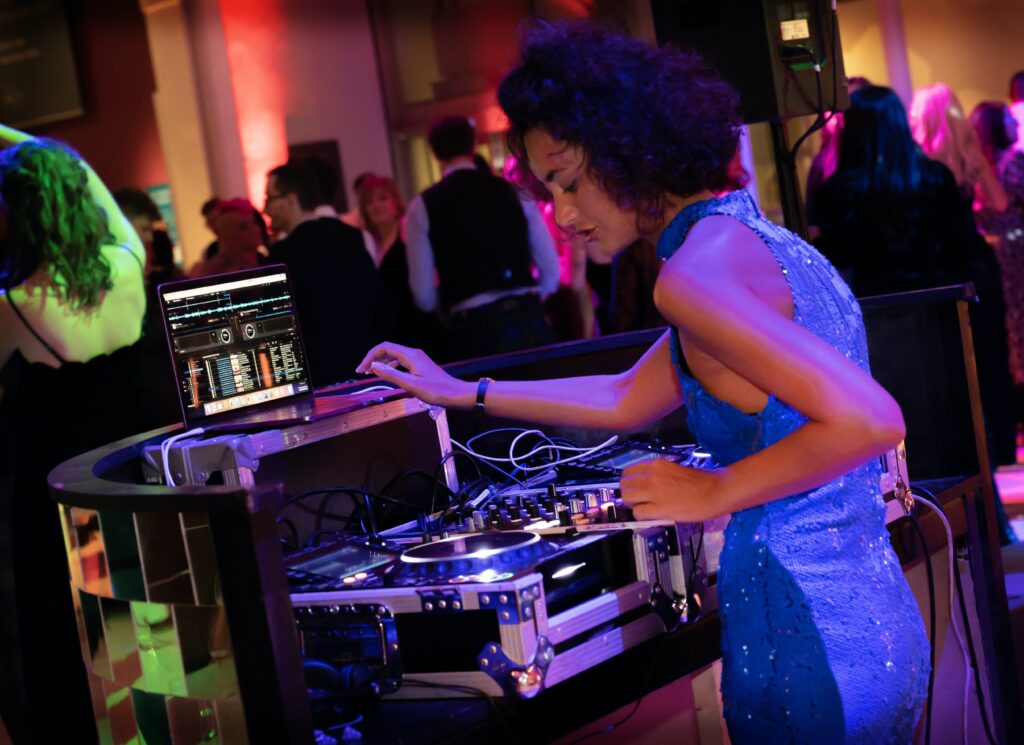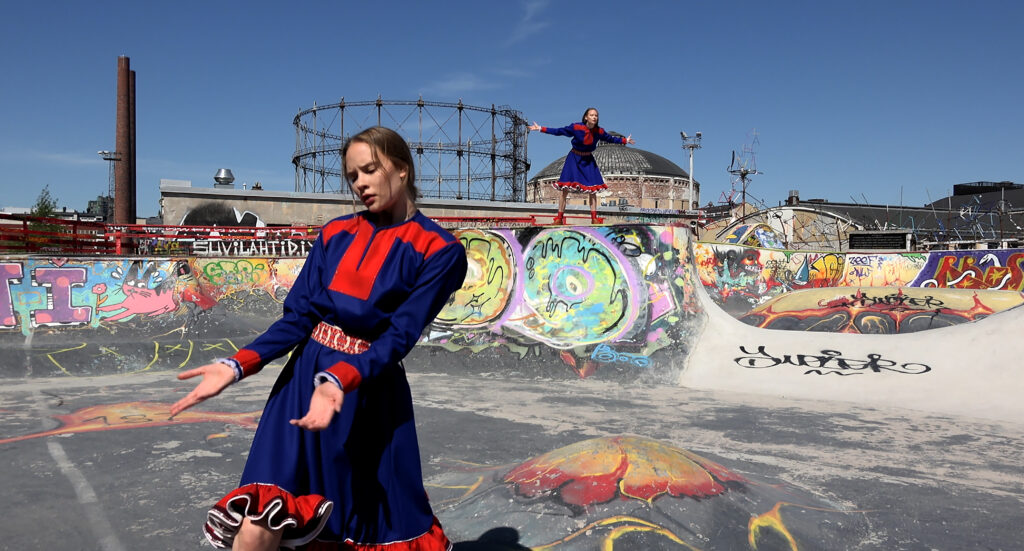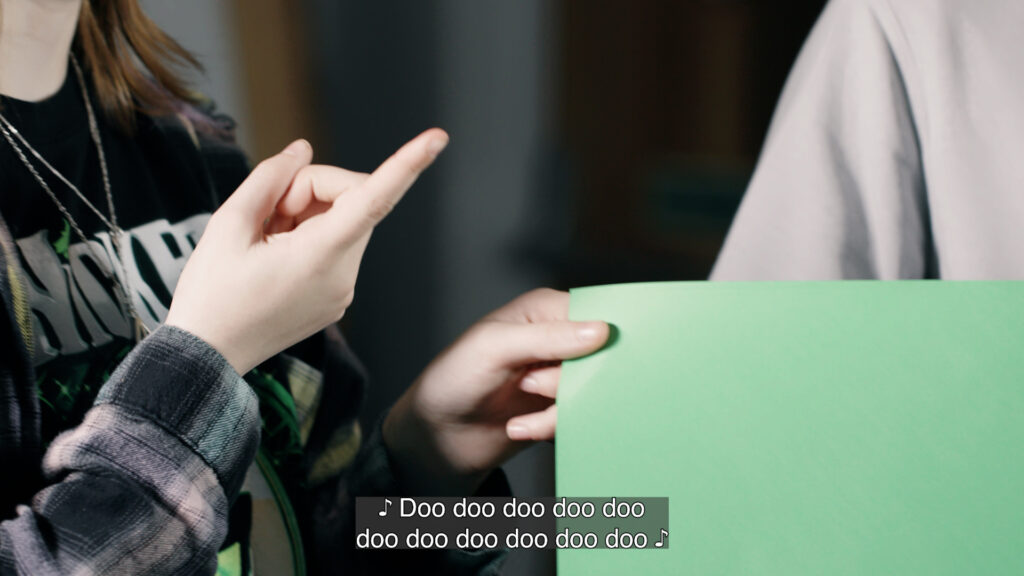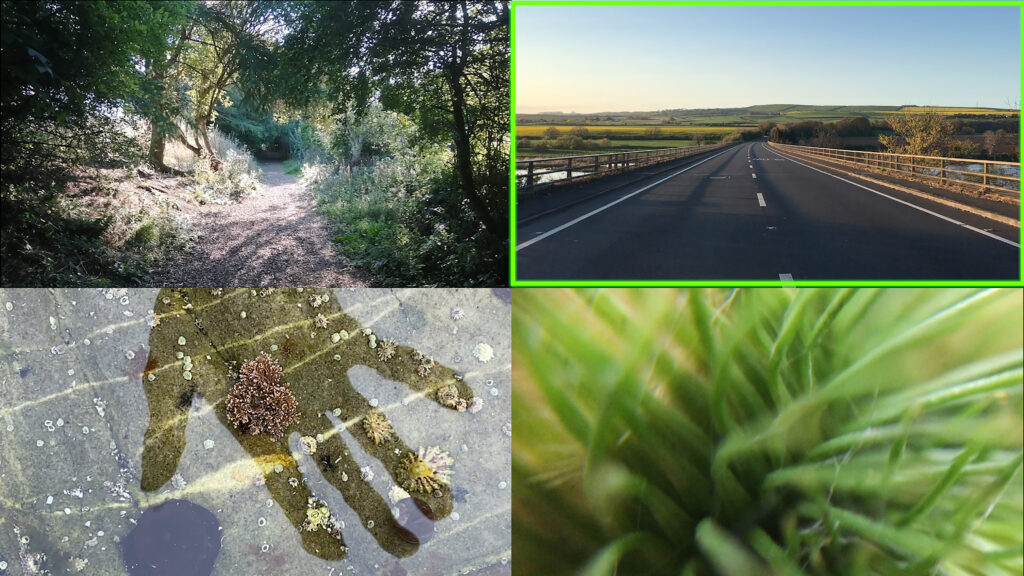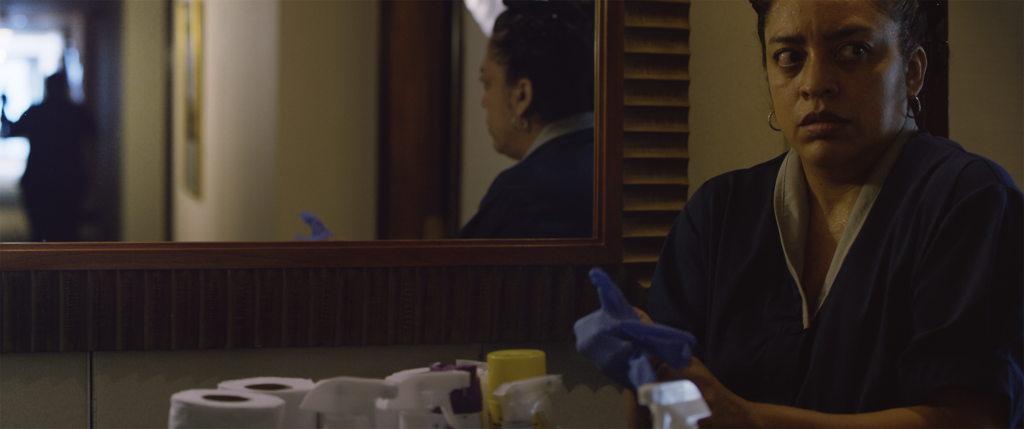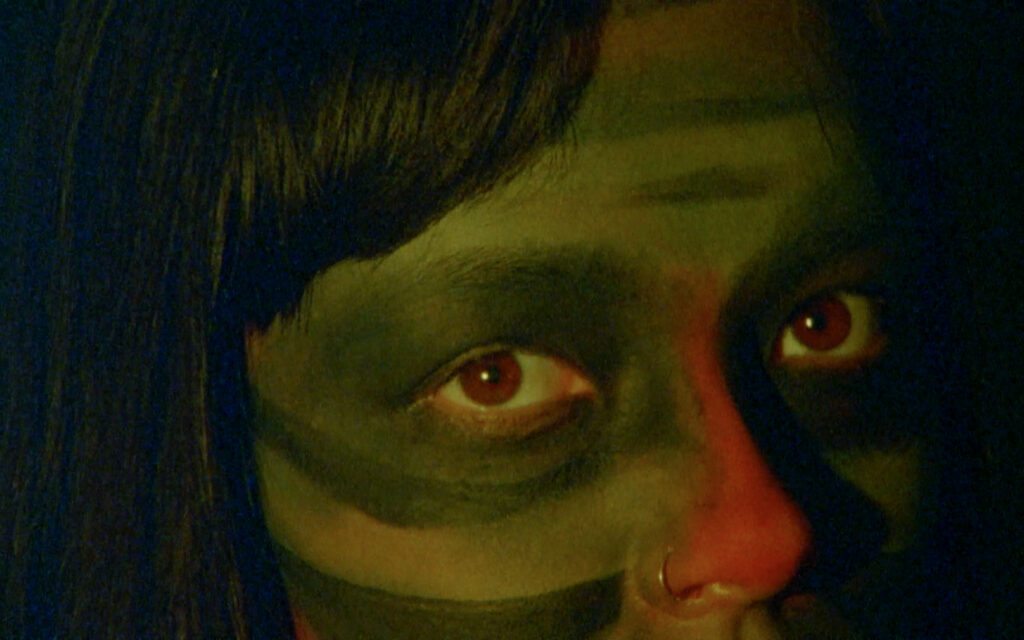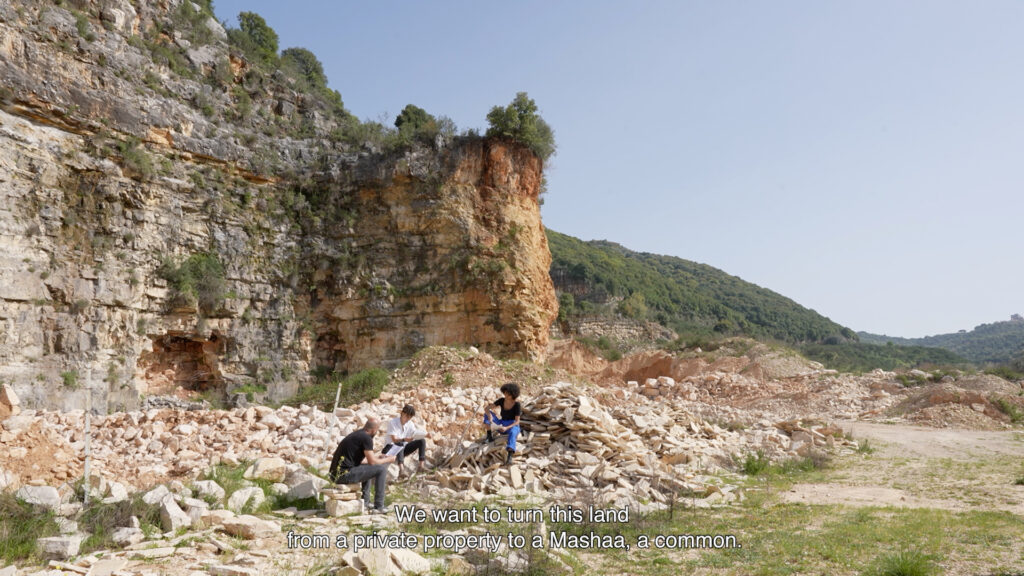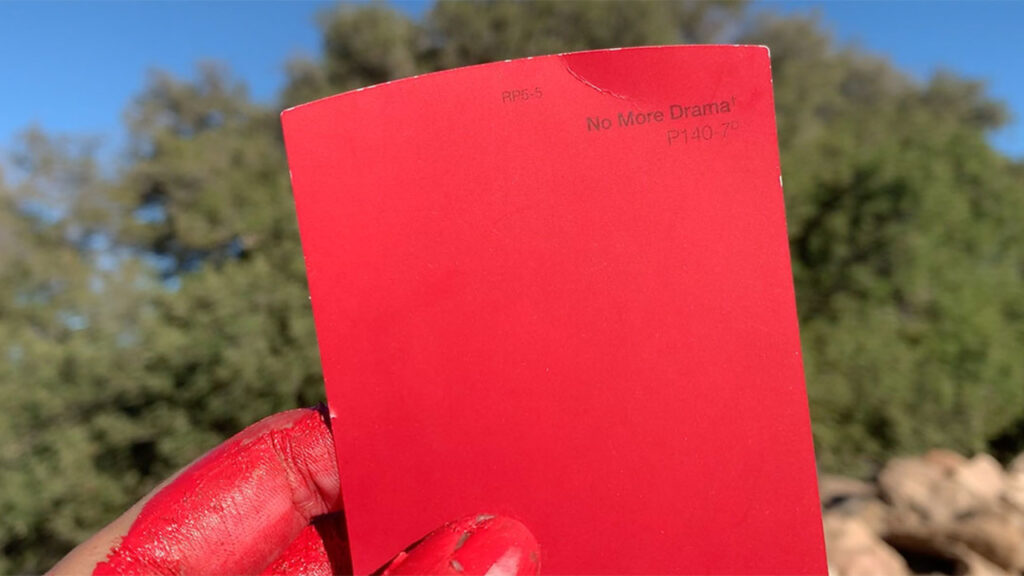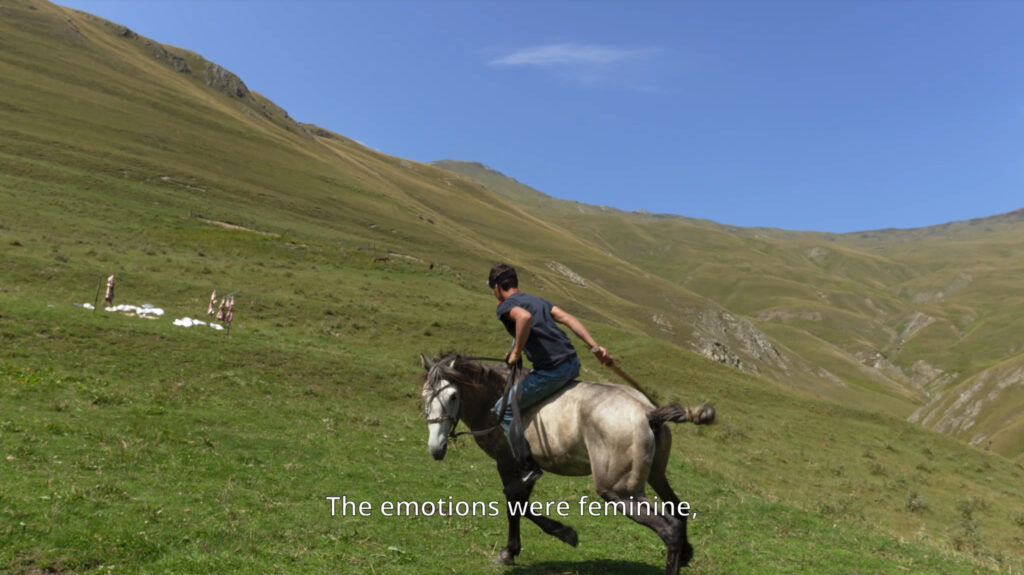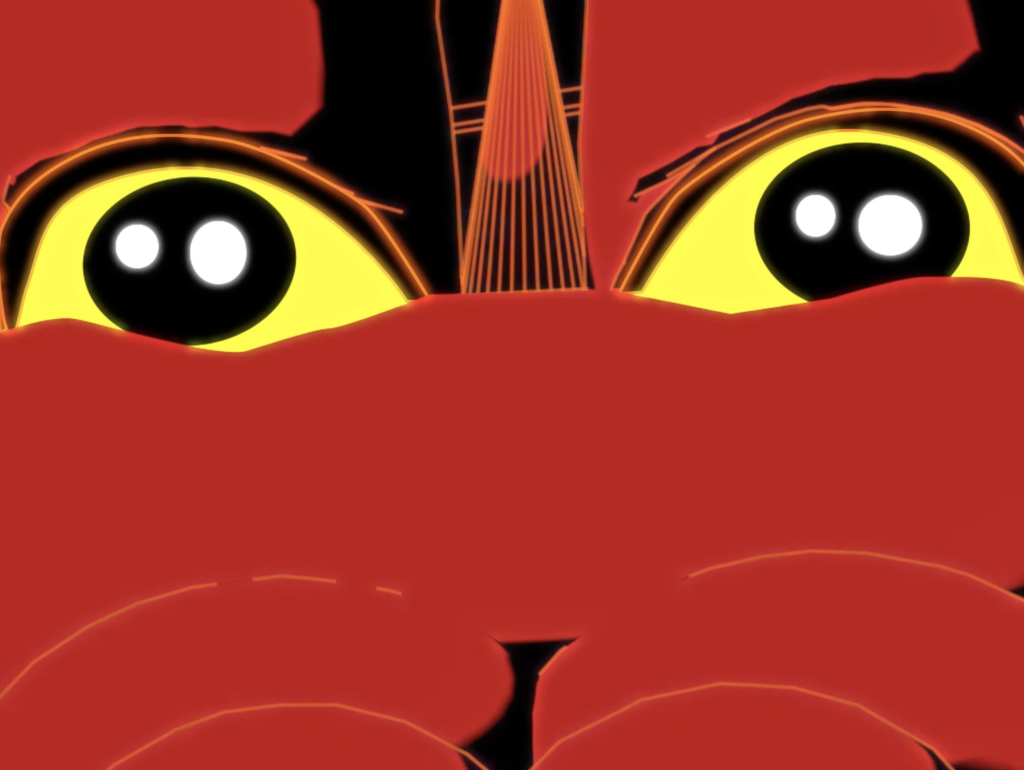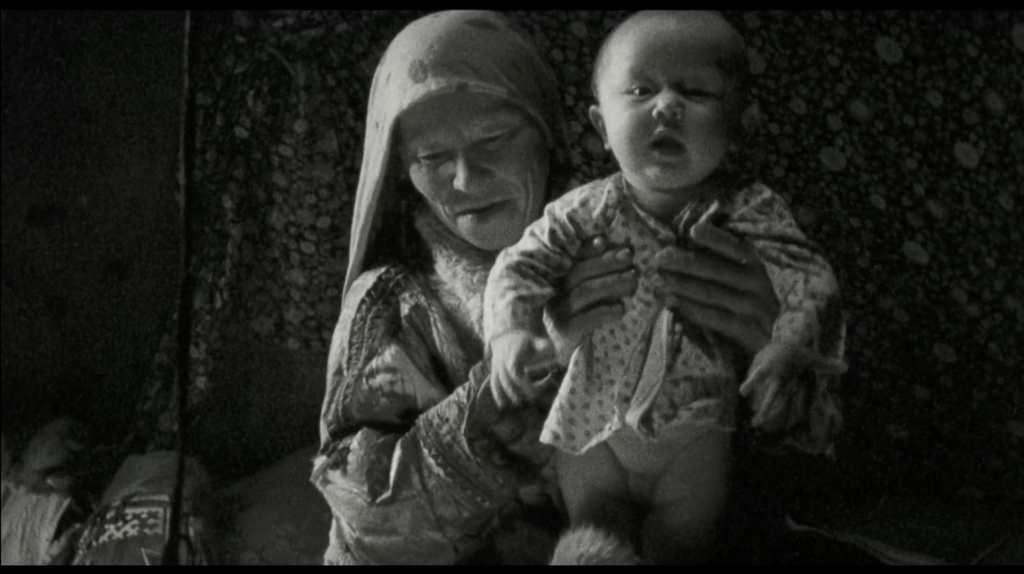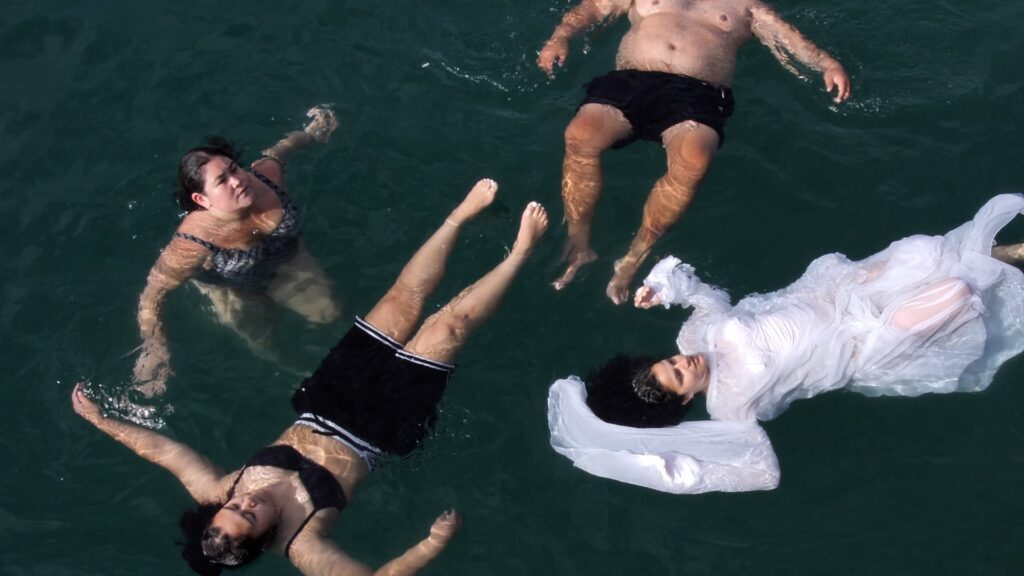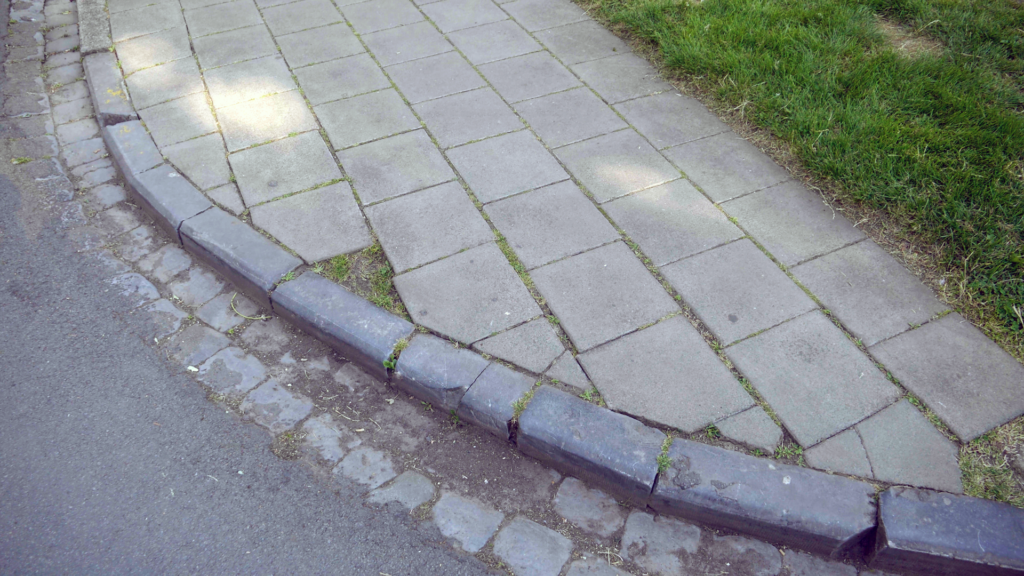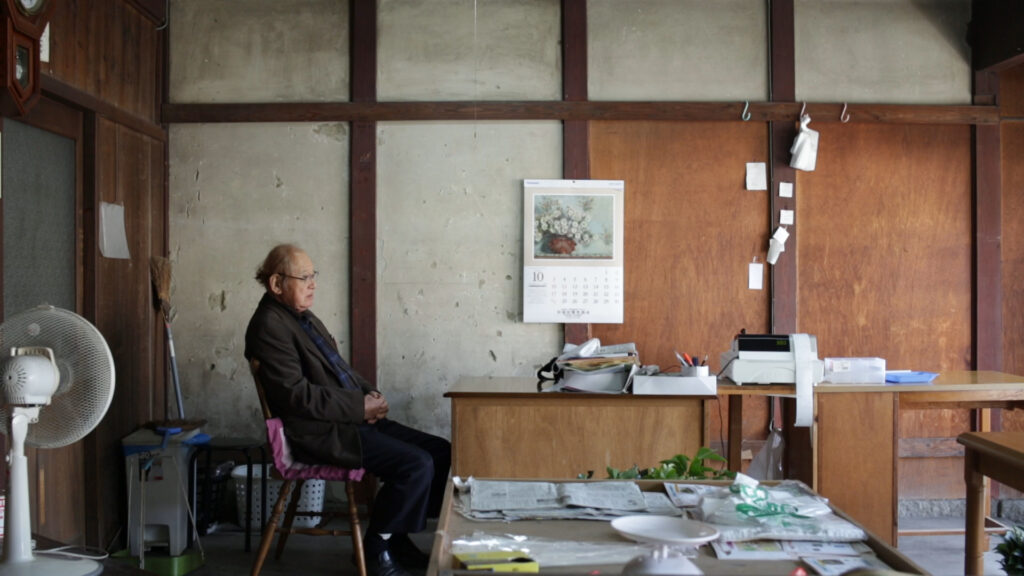The first of two screening programmes animating the work of Basma al-Sharif, BFMAF24 Filmmaker in Focus.
Born stateless and of Palestinian heritage, her work explores cyclical political histories and conflicts. In films and installations that move backward and forward in history, between place and non-place, she confronts the legacy of colonialism through satirical, immersive, and lyrical works.
Heiny Srour’s often censored, newly restored work is the only film to document a radical historic moment where the Popular Front for the Liberation of Oman and the Arabian Gulf (al-Jabhah al-Sha’abiyah li-Tahrir ‘Uman wa-al-Khalij al-‘Arabi, PFLOAG) momentarily created a secular, feminist and equalitarian society in Dhofar, Oman. The collectively made film shows how The People’s Army liberated a third of their homeland and built the first road, hospital, waterhole, pilot farm and school in the country.
Artist Debbie Bower (Foundation Press) hosts a drop-in workshop from 12:00 – 17:00 that asks us to envision a new film, and create a poster for it in response to the issues that are important to us.
Run Time
BFI NETWORK partners BFI Doc Society and Film Hub North are hosting an informal talent mixer for independent filmmakers and narrative/doc-curious creatives
BFI Mixers bring together local creatives and provide opportunities for growing your network, finding collaborators and connecting with the filmmaking community. There’s no set agenda for these events; we encourage you to introduce yourself to someone new and get talking.
The event also offers the chance to connect with BFI representatives, hear about regional opportunities and short film funding from Jen Bradfield (BFI NETWORK Talent Executive, Film Hub North) and Luke Moody (Head of the BFI Doc Society Fund).
Run Time
An open, drop-in conversation inviting responses to the Festival’s programme of films in relation to the complications of home – or hyem in Northumbrian dialect.
When even the most basic understanding of home as residence/shelter is not guaranteed, we open up this theme to an expansive conversation that asks: who has the right to a home? What underlies the commonplace idea of a home? Where does land figure in our perceptions of home?
Run Time
BFMAF and artist-run, Brussels-based film and distribution platform elephy invite you to join them for a peer-to-peer roundtable conversation called “Talking Collectively”. Here, artists, filmmakers, arts collectives, producers, distributors, curators, and writers come together to share know-how, triumphs and trials in the field of moving image and visual arts. Register here and propose a question, concern, or talking point on development, creation and (co-)production, distribution and presentation, self-organisation and maintenance.
This event is made possible with the support of the (Re)Connect with the UK grant of Flanders Arts Institute/Kunstenpunt (BE).
Full of ghosts and memories, Ghassan Salhab’s debut feature film is set in the late 1980s, towards the end of Lebanon’s Civil War. Protagonist Khalil returns to Beirut under a new identity, and to a confrontation with those he left behind following his apparent death a decade earlier. Featuring documentary elements and interviews with the lead actors, Phantom Beirut is a haunting exploration of the official silences and collective amnesias that stalk the lives of those who live through conflict.
The Burr Film Library contains stories made in and around Berwick
A conversation and screening of animations by school children in Berwick and Tweedmouth alongside their inspiration, The Hedgehog in the Fog (1975) – Yuri Norstein’s acclaimed Soviet animation about friendship, fear, and an epic journey through the forest of life that would go on to influence filmmakers worldwide, including Studio Ghibli co-founder Hayao Miyazaki.
All are welcome to pop in for this free screening at The Maltings!
Run Time
Reality or Not narrates the intriguing tale of a group of high school students nestled in the northern suburbs of Paris. They embark on a daring experiment, one that seeks to seize control of the reality enveloping them and reshape it according to their own vision. The project marks the latest milestone in the extensive research journey undertaken by the artist Cécile B. Evans, spanning the entirety of their career.
An experimental horror film based on a series of paranormal events that took place in the early ’70s in Hexham, Northern England. In this modern-day folk tale, two brothers become terrorised by ghostly visions after bringing a pair of stone heads into their family home. Combining photographic documentation with personal archive material and dreamlike sequences, Hexham Heads reflects on the haunted nature of family photographs and domestic objects as vessels of trauma.
A hypnosis-inducing pan-geographic shuttle built on brainwave-generating binaural beats, Deep Sleep takes us on a journey through the sound waves of Gaza and competing sights of modern ruin. Precipitated by the artist’s restricted travel to Palestine, the work is an invitation to move between the corporeal self and the cinema space – transcending the limits of borders and the fallibility of memory.
A relative’s likeness surfaces as a tattoo on the arm of a Ukrainian soldier and an army base in Oklahoma, built to fight Kiowa and Apache, is rededicated to aid in the fight against Putin’s Western expansion. Adam Piron explores the contradictions of colonialism and anti-settler solidarity across time, geography and the muddled spaces of TikTok, where representations of Indigenous peoples are caught up in the chaotic circulation of images.
The Burr is a new social space, screening library and discussion series named after the local Northumbrian language. Each day we’ll gather to collectively explore different topics with film and with guests. Come along for a giff-gaff!
In The Burr’s window space, and inside we present Hanoi-based Lucia Pham’s fizzy animations. She designed Bari, the newly liberated pink Berwick Bear – proudly featured in all of our posters and designs this year!
We invite you to visit a showcase of animations created by students from six schools in Berwick & Tweedmouth with locally based artists Robin Webb and Chloe Smith!
Library: Yrs 3+ 4 at Holy Trinity First School, Yr 4 at Berwick St Mary’s & Norham St Ceolwulf’s Church of England First Schools, Yr 4 at Tweedmouth West First School,
Visitor Centre: Yr 4 Tweedmouth Prior Park First School and Yr 8 at Tweedmouth Middle School (made in Yr 7).
Join us after the screening for the Festival Closing Social – a relaxed get-together round the corner at The Barrels Ale House
Run Time
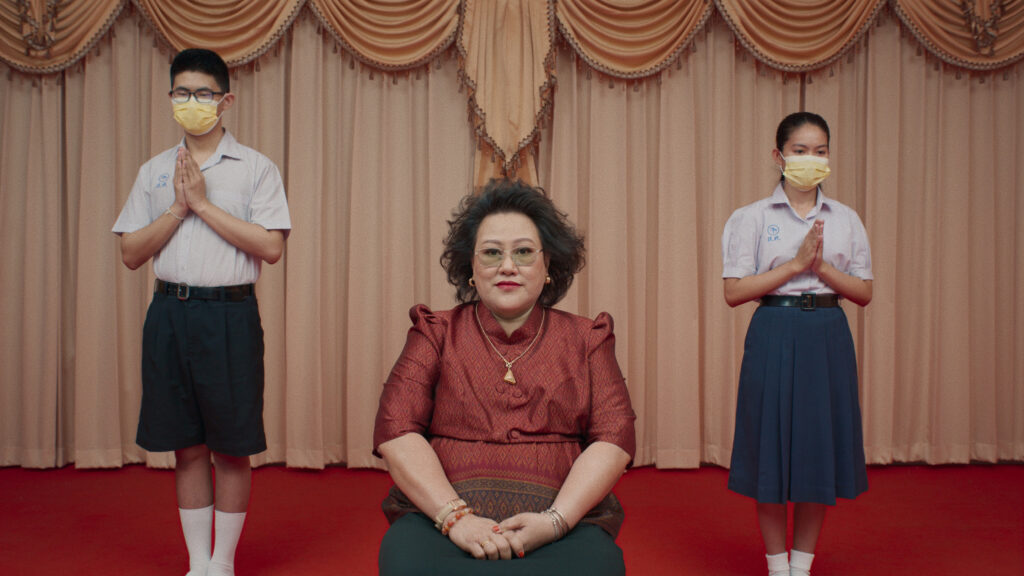
Closing Film: Arnold is a Model Student
Inspired by the Bad Student movement calling for educational reform in Thailand, Arnold Is a Model Student follows the titular protagonist as he joins forces with the rebellious Bee and an underground syndicate of misfits helping students cheat on their exams. This accessible yet subversive debut feature from Sorayos Prapapan pivots deftly between moments of absurdist humour and heartfelt, urgent gestures of cinematic protest. Combining dramatic details from his own childhood with footage from contemporary news and social media, Prapapan acknowledges a continuum of generational experience and the interplay between reality and fiction.
From the beginning of 2021, as the UK continued to confront the Covid pandemic, staff working in one North East England care home were invited to film their everyday lives. Care leads us through the ups and downs of life in the home over 12 months through the eyes, words, and newly learnt camera skills of those working and living there. As residents celebrate their own milestones, from 100th birthdays to winning at bingo and enjoy Christmas parties and VE Day, the film gives a joyful, challenging, and emotional insight into life, love and loss inside the home during and beyond the worst days of the pandemic.
A combined programme featuring Huw Lemmey and Onyeka Igwe’s lyrical reflection on intimacy and surveillance through the development of British espionage, and Manuel Muñoz Rivas’ transporting voyage across an expanse of water, half-light and darkness.
Translating as “Maputo, I Love You”, Brazilian filmmaker Ariadine Zampaulo’s hybrid cine-poem stiches together elements of documentary, fabulation, performance, and soundscape to produce a polyphonic portrait of Mozambique’s capital city. Her camera beautifully captures the flow and rhythms of urban life unfolding over the course of a single day: Revellers spill from nightclubs as workers board commuter trains; tourists and joggers vie for position in the city’s ancient streets; and a local radio station announces the disappearance of a bride.
Drawing on a wealth of unseen archival material and unpublished notebooks, Being in a Place weaves a complex and personal portrait of Margaret Tait’s life, from the perspective of a fellow artist sensitive to the potential Margaret envisaged for film as a poetic medium. At the centre of the film is an imagining of an unrealised script for a feature film discovered amongst Margaret’s documents in Orkney titled, Heartlandscape: Being in a place – a document of a landscape, and of a journey through it.
Three concentrated doses of cinematic pleasure. Artists in this programme meditate on storytelling and agency, synthesising practices of filmmaking and living to suggest new forms of intergenerational care. The ways we interpret our collective selves are explored through tender engagements with technologies of record and remembrance.
Rea Tajiri’s vibrant, tender cine-poem is fashioned in collaboration with her mother, Rose, as together they confront the painful, curious reality of wisdom “gone wild” in the shadows of dementia. Made over sixteen years, the film blends fact and fiction, humour and sadness, to stage a fragmented, dream-like encounter between mother and daughter that blooms into an affectionate portrait of love, care, and a relationship transformed.
An in-person screening-performance by award-winning Iranian artist, Maryam Tafakory, whose textual and filmic collages interweave poetry, documentary, archival, and found material.
“To the outsiders, the bystanders, the virtual onlookers, to the disaster capitalist, the hopeless, the failed revolutionist—from wherever you are standing, come a step closer and listen as we try to rewind, to fast forward, to pause, to look away…”
An anthology of stories made collaboratively with the Nenets, an indigenous nomadic people of the Russian tundra under modern Communist rule. Beautifully composed from both archive material and cinematography, the film blends fiction and documentary to produce a vivid portrait of Nenets culture as told and performed by the people themselves. As the first feature film made in the Nenets language, Seven Songs makes an important contribution to contemporary indigenous cinema and a timely intervention into continuing calls for decolonization in Russia.
An open discussion on the work of this year’s Filmmakers in Focus, Anastasia Lapsui & Markku Lehmuskallio with their close collaborator Johannes Lehmuskallio (co-director, cinematographer and actor), academic Caroline Damiens (Université Paris Nanterre), and BFMAF Programmer Herb Shellenberger. We will engage with the collaborative, “Fourth Cinema” approach to filmmaking taken up by Lapsui, Lehmuskallio and their collaborators which include Indigenous communities in regions of the Circumpolar North. The conversation will explore beyond the four titles in our retrospective, towards a richer picture of their filmmaking oeuvre and the politics and poetics of representation through hybrid forms of cinema.
Personal, geological and collective histories are reencountered through this series of films. A reckoning is at the core of Myrid Carten’s candid portrait of familial ties in Sorrow had a baby. While the caverns of a corpse mountain become the place and wonder for a curious eye in Rita Morais’ 16mm film Há ouro em todo o lado, where a child’s play and voice relay sage observations of its past transformation. Afro-Diasporic underground disco, house and ballroom culture is source and inspiration for the blissful and rapturous worldmaking within India Sky Davis’ The Lifecycle of Rainbows.
Descendants is presented in collaboration with the MA Artists’ Film & Moving Image at Goldsmiths University of London, selected by artist filmmaker and programme director Gail Pickering.
Funny, gross and outrageously over-the-top, Jon Moritsugu’s cult classic is a maximally irreverent slice of early 90s punk culture satirising representations of the Japanese-American family unit. Newly restored from eyeball-scorching Panavision, this is Moritsugu’s Asian freak-out magnum opus that shocked America when it was broadcast on television in the mid-90’s. The director himself plays twins (a drug-dealing bad-ass and a closeted math nerd) in a radically dysfunctional family that completely obliterates the noble myth of the “model minority”.
Subterranean Sound and GRDN’s off-kilter DJ, event organiser and party-pusher, Noodle, invites you to show your bones on the dance floor and work your way through a loose, playful, potent hit of minimal, bouncy, bass-driven breaksy sounds.
What is to be done when our homes and our dreams have been invaded? Graeme Arnfield’s nightmarish essay film traces the curious history of the doorbell, from its invention and reinventions through 19th century labour struggles, to the nascent years of narrative cinema and contemporary surveillance cultures. Home Invasion paints a terrifying portrait of technological ideologies and imaginaries shaping our everyday lives, staging a confrontation with the reality of machines and systems that work against us, hindering the emergence of radical futures.
Cláudia Varejão’s debut fiction film is a luminous ode to queer communities on the Azores island of Sao Miguel. Culturally specific and delicately nuanced, Wolf and Dog follows protagonist, Ana, as she navigates the stifling forces of religion and tradition in pursuit of the passions and butterflies of new desire. Mirroring Ana’s journey of self-discovery, Varejão’s initially observational style slowly gives way to something more lush and experimental, capturing the gentle unfolding of young love finding its first voice.
Inner and outer space interpolate in this series of films exploring relational dynamics between public and private worlds. Instagram filters, YouTube tutorials, dating apps and a wearable eye tracker become interfaces through which to perceive shifting notions of bodily autonomy in contemporary life.
A presentation of Helena Solberg’s debut short films (1966-69) alongside her 1982 feature From the Ashes: Nicaragua Today which brings a multi-layered feminist perspective to a political and societal portrait of the country following the 1979 insurrection that overthrew the Somoza dictatorship. Her shorts, made during one of the most repressive moments of the Brazilian military dictatorship, examine the unliveable conditions experienced by communities under oppression and emphasise women’s agency as active protagonists in the living and telling of their own stories.
Science meets speculative fiction in artist Deborah Stratman’s poetic, associative reflection on evolution and extinction from the point of view of rocks and various future others. Loosely based on two short stories by J.-H. Rosny, considered one of the founding figures of modern science fiction, and thinking with figures from Roger Caillois to Donna Haraway, Stratman troubles the limits of human perception, mining the farthest reaches of the biosphere for (im)material traces that bind past, present, and future.
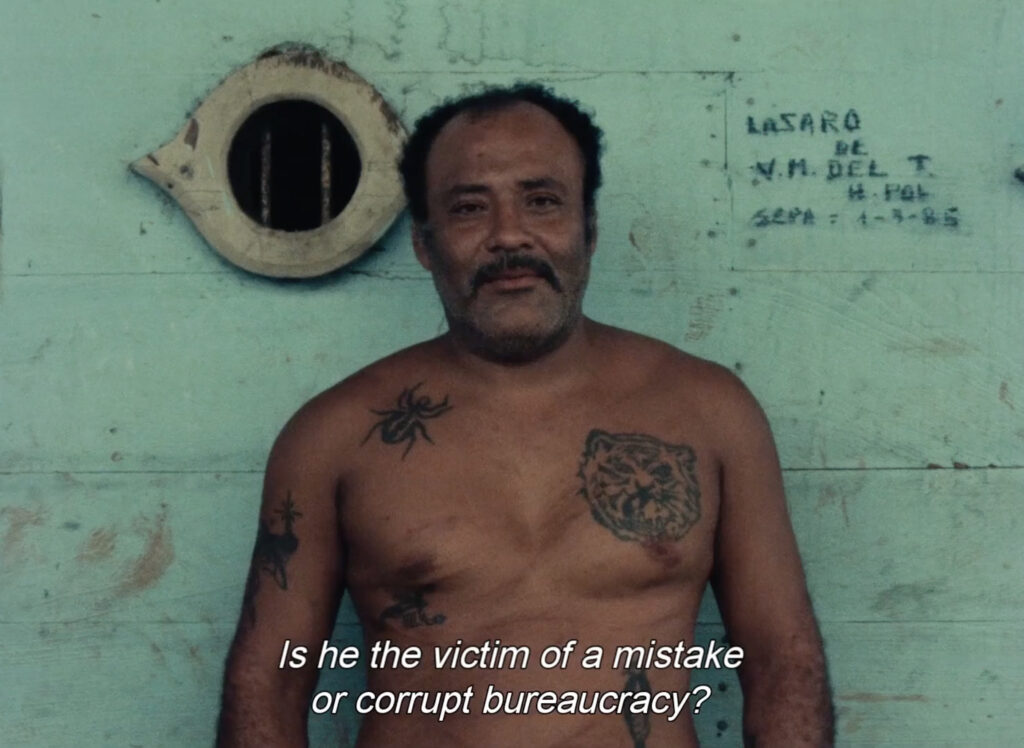
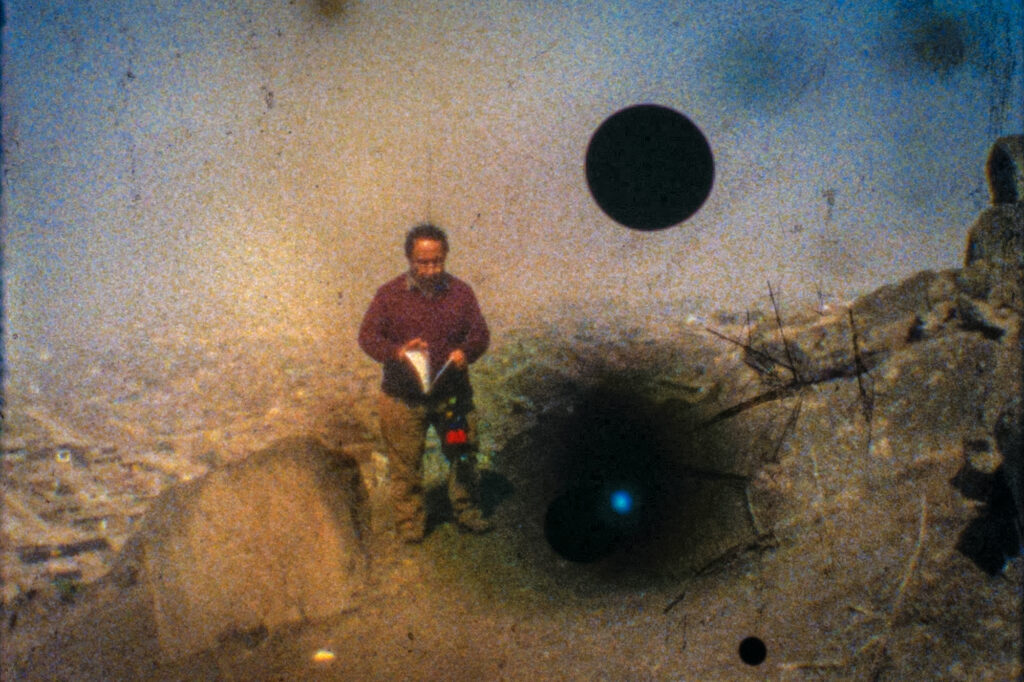
Sepa: Our Lord of the Miracles • After the Dust
A pairing of films made in Peru exploring the politics and poetics of justice, liberty, remembrance and forgetting. Walter Saxer’s Sepa: Our Lord of the Miracles traces stories of people lost to the enclosed reality of the prison system, whilst Colectivo Silencio’s After the Dust reanimates voices of resistance often-willingly forgotten within the enclosed system of the nation state.
A series of hypnotic, fragmentary encounters reflecting on creativity, desire, identity and transformation. Forms of transgressive potentiality are explored through poppers training videos, VHS tapes documenting an esoteric musical subculture, and a night of ritual shapeshifting in a Boston parking lot.
Renegade remixologists Soda Jerk return with Hello Dankness, a bent suburban musical comprised entirely of pirated film samples that bears witness to the psychotropic cultural spectacle of the period 2016 to 2021. Set in the American suburbs, the film follows a neighbourhood as consensus reality disintegrates into conspiracies and other political contagions. Part political satire, zombie stoner film, and Greek tragedy, Hello Dankness is also informed by the encrypted memetics of contemporary internet culture.
With understated precision, Markku Lehmuskallio’s The Blue Mammy focuses on the sensitive interplay between sound and image while unfurling a story surrounding Joel, a deaf painter who lives in a small village in Lapland. While he has trouble fitting in with the community of people around him, Joel communes with nature and speaks nonverbally with a spirit. The film distils a wealth of provocative ideas—around artistic creation, alternative forms of communication and the importance of the natural world to human animals—into a stunning filmic tone poem.
Christopher Ulutupu is an artist of Samoan/Niuean/German descent currently residing in Wellington. Through a richly pop, queer and celebratory Pacific lens he creates new narrative forms opening up conversations around collaboration, connection, and disconnection. The Pleasures of Unbelonging is a new commission presented by CIRCUIT with support from TAUTAI, Creative New Zealand and BFMAF. Following its world premiere screening Christopher will be in conversation with May Adadol Ingawanij, Professor of Cinematic Arts at University of Westminster.
After a day at the movies, it’s time to get up, get down, and get on out to party with Miss Mobile Disco – Edinburgh’s finest Mobile DJ, serving up killer cocktails of disco, funk, soul, 80’s and feel good party gems!
In Inuit, the word meaning to bring forth a poem is the same as the word to breathe – an act that inspires Finnish filmmaker Markku Lehmuskallio’s poetic ethnography, co-directed with his son Johannes Lehmuskallio. A beautifully expansive film centred on performance and the importance of song, Anerca, Breath of life was shot over several decades with the indigenous peoples of the Arctic Circle. People and cultures spanning the borders of Finland, Sweden, Norway, Greenland, Canada, Alaska and Russia, the filmmakers are clear to point out, “It wasn’t these cultures that drew up these borders, rights have been violated.” Speaking against these continued infractions, the film magnificently expresses the joy, pain and energy of these individuals and communities through fleeting, magical moments of performance, conversation and cinema.
Three short works by young filmmakers in Berwick, made collaboratively with artists Kimberley O’Neill and Kathryn Elkin. Applying techniques of digital filmmaking and documentary storytelling, the films explore entangled relationships between people, technology and the local environment.
A programme of short works traversing hallucinatory dreamscapes, contested landscapes, and the precarious movements of bodies through time and space. Argentinian auteur Lucrecia Martel screens alongside contemporary artists, Basim Magdy, Marwa Arsanios and Fox Maxy.
The isolated mountainous region of Tusheti, in Northeast Georgia, is the site for a reflection on the importance of ritual, the maintenance of community ties, and how modernisation and migration are transforming rural landscapes. Shot over several years, Let Us Flow uses inovative audio-visual techniques to make visible the symbolic and physical division of sacred spaces within the community and offers a nuanced perspective on a culture where ancestral shrines are only accessible to men.
Meriem Bennani’s playful sci-fi trilogy mixes live action, day-glo animation, and a kaleidoscopic score by Fatima Al Qadiri to explore the entangled politics of immigration, state control, and the border zone. Episodes focus on inhabitants of the fictional island of CAPS (short for ‘capsule’), a magnetically sealed megalopolis created to intercept refugees attempting to teleport illegally into the US. Citizens work together to develop new modes of defiance and resistance, harnessing not only emergent biotechnologies but also the liberatory potential of joy and humour.
Nedarma (Travelling) is a documentary focusing on the Nenets, a nomadic tribe in the northern tundra of Siberia which Anastasia Lapsui was born into. Sumptuous 35mm black and white cinematography captures the landscapes of the Yamal Peninsula and the daily activities of its inhabitants with patience, a visionary perspective and a captivating soundtrack. The film begins by illustrating the Nenets cosmology as a way of leading into a filmic structure that portrays the arc of life from birth to death.
Drawing on the filmmaker’s experiences growing up in a large Samoan family in the largely Pākehā populated region of Nelson, Hidden Amongst Clouds newly imagines stories of Samoan mythology and questions the moral virtues they uphold. The work embraces a 1990’s aesthetic, harking back to supernatural fantasy television series and their embedded symbolisms, reflecting Ulutupu’s ongoing interest in themes of belonging and the importance of recontextualising and reimagining narratives of colonial stereotypes.
Belgian filmmaker and cinematographer Fairuz Ghammam’s warm, generous work explores aspects of (auto)biography, shared authorship, and collaborative practices.
Staged as a walk through her hometown, Kortrijk, Culture riffs on these themes, sewing kernels of family history through a narrative, and a gaze, that oscillates between private and public space. How many memories and storylines can coexist?
A quiet, atmospheric portrait of an elderly store owner in the small town of Yagi, Kyoto Prefecture. Yu Araki’s camera carefully observes the curiously named Mr. Yagi’s daily routine and interactions with local customers during the last autumn season for his shop, which is no longer in business. Documenting the passage of time in parallel with processes of depopulation, the title Tempo conjures a double meaning; playing on the Japanese word “tenpo (店舗)” which means “store”.


